Nutrition
How to submit an article:
- Registered users can submit any published journal article that has a unique DOI (Digital Object Identifier) name or link to Research Hub.
- For example, you can paste the full DOI link:
https://doi.org/10.1109/5.771073or just the DOI name:10.1109/5.771073into the field above and click submit. - The person who is first to submit a valid article to Research Hub will forever be credited for it, and every article submission earns you +6 Research Points.
Related Topics
Published research studies are articles that present the findings of original research that has undergone a peer-review process and has been made publicly available in scholarly journals, books or other media.
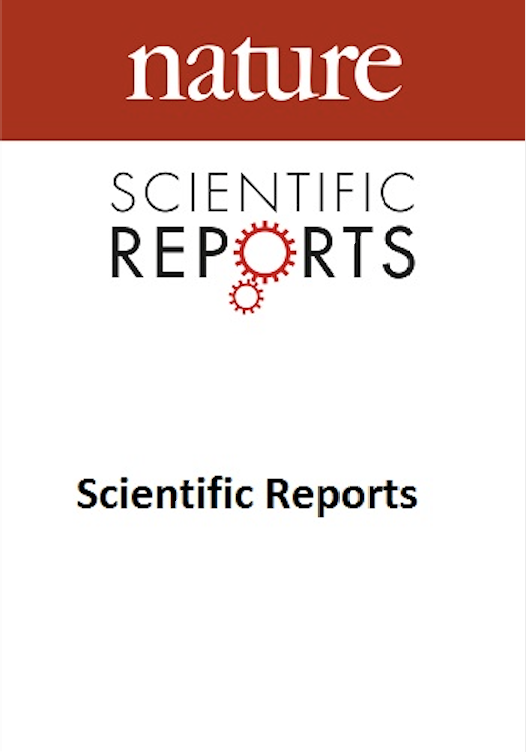
Effectiveness of a novel diet in attenuation of clinical activity of disease in patients with ulcerative colitis: a randomized, clinical trial
2024 Jun 14 Scientific Reports Narimani B, Sadeghi A, Daryani NE, Shahrokh S, Nilghaz M, Ghods M, et al.
Randomised Controlled Trial Low FODMAP Ulcerative ColitisA combined Mediterranean, low-FODMAP diet along with partial enteral nutrition has shown promise in reducing ulcerative colitis activity and improving patients' quality of life.

Recommendations for nutritional supplements for dry eye disease: current advances
2024 May 30 Frontiers in Pharmacology Cong Y, Zhang Y, Han Y, Wu Y, Wang D, Zhang B
Systematic Review Review Article Omega-3 Fatty Acids Dry EyeThe review reveals that nutritional supplements, particularly fish oils, vitamins, trace elements, and phytochemical extracts, show promising therapeutic potential for Dry Eye Disease management.
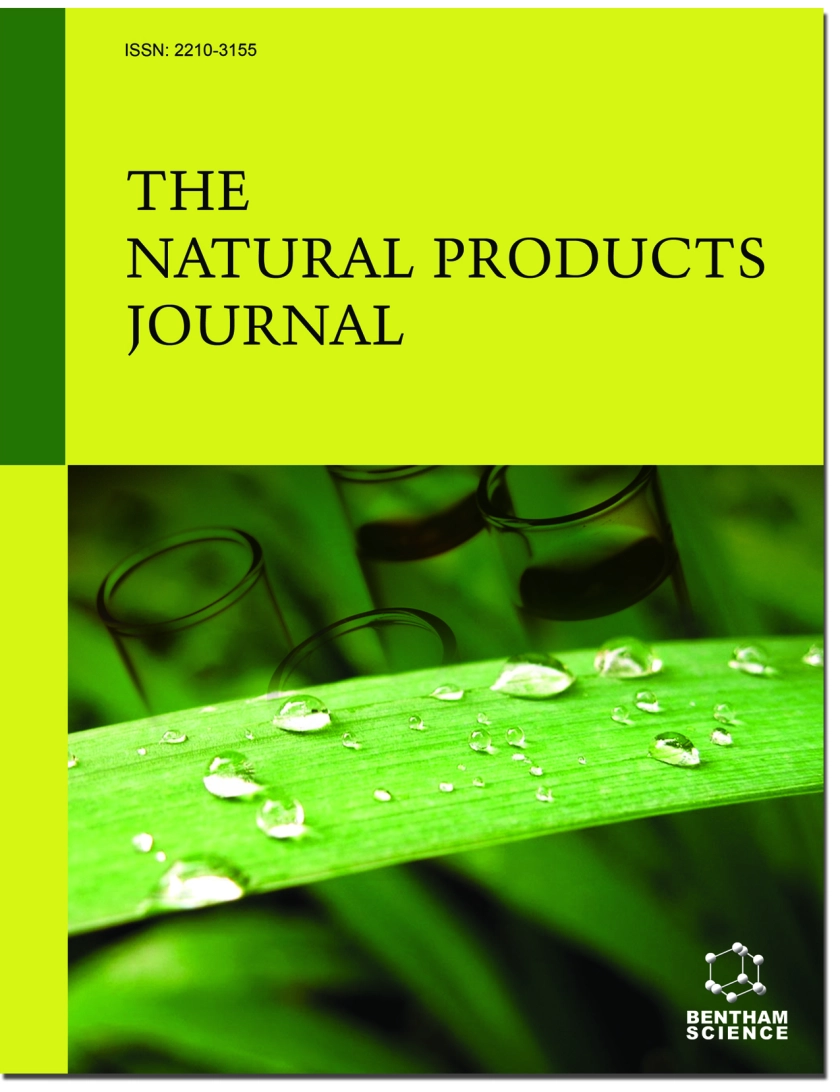
Pumpkin Seeds (Cucurbita spp.) as a Nutraceutical Used In Various Lifestyle Disorders
2024 Feb The Natural Products Journal Wal A, Singh MR, Gupta A, Rathore S, Rout RR, Wal P
Review Article Anticancer Antioxidant Cardiovascular Disease Depression Anti-ParasitePumpkin seeds are recognised for their medicinal, nutritional, and cosmetic benefits, including anti-diabetic, heart disease prevention, anti-cancer, and antioxidant qualities.
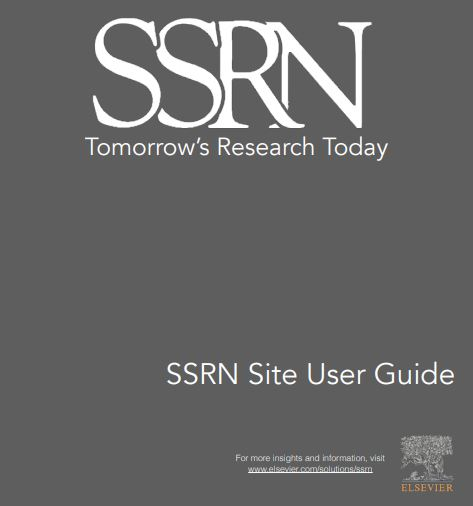
A Comprehensive Review on Therapeutic Properties of Lotus Seeds
2024 Jan SSRN Electronic Journal Marik S, Mukherjee (Datta) D, Sengupta S
Lotus seeds have been traditionally used for their therapeutic benefits in treating various diseases, supported by their nutritional components and bioactive properties, making them a valuable functional food.
Review Article Lotus Seed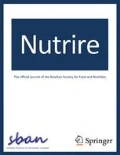
Nutritional and health-beneficial values of almond nuts consumption
2023 Nov 02 Nutrire Ouzir M
Review Article Almond Type 2 Diabetes ObesityAlmond consumption has beneficial impacts on cardiovascular diseases, diabetes, obesity, and it can improve cognitive performance and protect against skin aging.
Research insights are moderated by the Research Hub team and offer an at-a-glance overview of interesting research findings.

2024 Scientific Reports
A combined Mediterranean, low-FODMAP diet along with partial enteral nutrition has shown promise in reducing ulcerative colitis activity and improving patients' quality of life.
Randomised Controlled Trial Low FODMAP Ulcerative Colitis
Effectiveness of a novel diet in attenuation of clinical activity of disease in patients with ulcerative colitis: a randomized, clinical trial
Narimani B, Sadeghi A, Daryani NE, Shahrokh S, Nilghaz M, Ghods M, et al.

2024 Frontiers in Pharmacology
The review reveals that nutritional supplements, particularly fish oils, vitamins, trace elements, and phytochemical extracts, show promising therapeutic potential for Dry Eye Disease management.
Systematic Review Dry Eye Omega-3 Fatty Acids
Recommendations for nutritional supplements for dry eye disease: current advances
Cong Y, Zhang Y, Han Y, Wu Y, Wang D, Zhang B

2024 The Natural Products Journal
Pumpkin seeds are recognised for their medicinal, nutritional, and cosmetic benefits, including anti-diabetic, heart disease prevention, anti-cancer, and antioxidant qualities.
Review Article Anti-Parasite Anticancer Antioxidant Cardiovascular Disease Depression
Pumpkin Seeds (Cucurbita spp.) as a Nutraceutical Used In Various Lifestyle
Disorders
Wal A, Singh MR, Gupta A, Rathore S, Rout RR, Wal P

2023 Nutrire
Almond consumption has beneficial impacts on cardiovascular diseases, diabetes, obesity, and it can improve cognitive performance and protect against skin aging.
Review Article Almond Obesity Type 2 Diabetes
Nutritional and health-beneficial values of almond nuts consumption
Ouzir M

2023 Food Chemistry Advances
Pomegranate and its by-products, particularly the peel, contain bioactive compounds with potential antimicrobial, anticancer and antiviral properties.
Review Article Antimicrobial Antiviral Pomegranate
The whole pomegranate (Punica granatum. L), biological properties and important findings: A review
Valero-Mendoza AG, Meléndez-Rentería NP, Chávez-González ML, Flores-Gallegos AC, Wong-Paz JE, Govea-Salas M, et al.
Review Articles
Review articles summarise and critically evaluate the current state of research on a specific topic or field by synthesising multiple primary research studies.

Recommendations for nutritional supplements for dry eye disease: current advances
2024 May 30 Frontiers in Pharmacology Cong Y, Zhang Y, Han Y, Wu Y, Wang D, Zhang B
Systematic Review Review Article Omega-3 Fatty Acids Dry EyeThe review reveals that nutritional supplements, particularly fish oils, vitamins, trace elements, and phytochemical extracts, show promising therapeutic potential for Dry Eye Disease management.

Pumpkin Seeds (Cucurbita spp.) as a Nutraceutical Used In Various Lifestyle Disorders
2024 Feb The Natural Products Journal Wal A, Singh MR, Gupta A, Rathore S, Rout RR, Wal P
Review Article Anticancer Antioxidant Cardiovascular Disease Depression Anti-ParasitePumpkin seeds are recognised for their medicinal, nutritional, and cosmetic benefits, including anti-diabetic, heart disease prevention, anti-cancer, and antioxidant qualities.

A Comprehensive Review on Therapeutic Properties of Lotus Seeds
2024 Jan SSRN Electronic Journal Marik S, Mukherjee (Datta) D, Sengupta S
Lotus seeds have been traditionally used for their therapeutic benefits in treating various diseases, supported by their nutritional components and bioactive properties, making them a valuable functional food.
Review Article Lotus Seed
Nutritional and health-beneficial values of almond nuts consumption
2023 Nov 02 Nutrire Ouzir M
Review Article Almond Type 2 Diabetes ObesityAlmond consumption has beneficial impacts on cardiovascular diseases, diabetes, obesity, and it can improve cognitive performance and protect against skin aging.

The whole pomegranate (Punica granatum. L), biological properties and important findings: A review
2023 Oct Food Chemistry Advances Valero-Mendoza AG, Meléndez-Rentería NP, Chávez-González ML, Flores-Gallegos AC, Wong-Paz JE, Govea-Salas M, et al.
Review Article Pomegranate Antimicrobial AntiviralPomegranate and its by-products, particularly the peel, contain bioactive compounds with potential antimicrobial, anticancer and antiviral properties.
Clinical Trials
Clinical trials are research studies that involve people and are conducted to evaluate the safety and efficacy of new treatments or interventions, such as drugs, medical devices, or behavioural therapies.

Effectiveness of a novel diet in attenuation of clinical activity of disease in patients with ulcerative colitis: a randomized, clinical trial
2024 Jun 14 Scientific Reports Narimani B, Sadeghi A, Daryani NE, Shahrokh S, Nilghaz M, Ghods M, et al.
Randomised Controlled Trial Low FODMAP Ulcerative ColitisA combined Mediterranean, low-FODMAP diet along with partial enteral nutrition has shown promise in reducing ulcerative colitis activity and improving patients' quality of life.

Evaluation of the Safety and Effectiveness of Nutritional Supplements for Treating Hair Loss
2023 Jan 01 JAMA Dermatology Drake L, Reyes-Hadsall S, Martinez J, Heinrich C, Huang K, Mostaghimi A
Dietary and nutritional interventions, including Viviscal, Nourkrin, Nutrafol, Lamdapil, Pantogar, capsaicin and isoflavone, omegas 3 and 6 with antioxidants, apple nutraceutical, total glucosides of paeony and compound glycyrrhizin tablets, zinc, tocotrienol, pumpkin seed oil, Kimchi and cheonggukjang, vitamin D3, and Forti5, showed varying levels of evidence for potential benefits in improving disease course, with rare and mild adverse effects.
Systematic Review Randomised Controlled Trial Hair Loss Pumpkin Seed Oil
To eat or not to eat—an exploratory randomized controlled trial on fasting and plant-based diet in rheumatoid arthritis (NutriFast-Study)
2022 Nov 02 Frontiers in Nutrition Hartmann AM, Dell'Oro M, Spoo M, Fischer JM, Steckhan N, Jeitler M, et al.
Randomised Controlled Trial Plant-Based Diet Cardiovascular Risk Rheumatoid ArthritisFasting followed by a plant-based diet and a standard diet both positively affected rheumatoid arthritis disease activity and cardiovascular risk factors, without discernible differences.
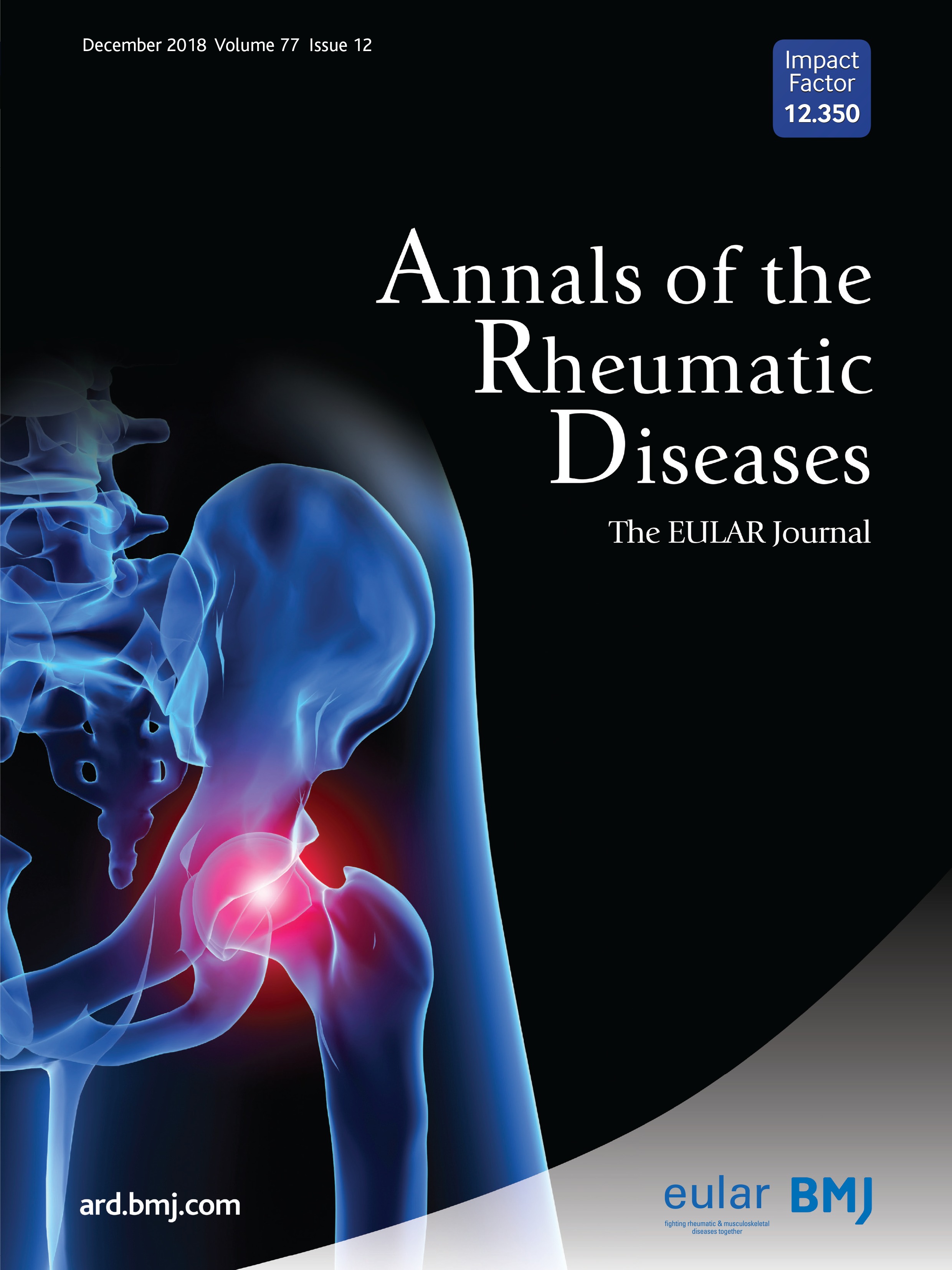
POS0583 RHEUMATOID ARTHRITIS BENEFITS FROM FASTING AND PLANT-BASED DIET: AN EXPLORATORY RANDOMIZED CONTROLLED TRIAL (NUTRIFAST)
2022 May 23 Annals of the Rheumatic Diseases Hartmann AM, Kandil FI, Steckhan N, Häupl T, Kessler CS, Michalsen A, et al.
Randomised Controlled Trial Plant-Based Diet Intermittent Fasting Rheumatoid ArthritisFasting followed by a plant-based diet positively impacts disease activity and cardiovascular risk factors in rheumatoid arthritis patients.
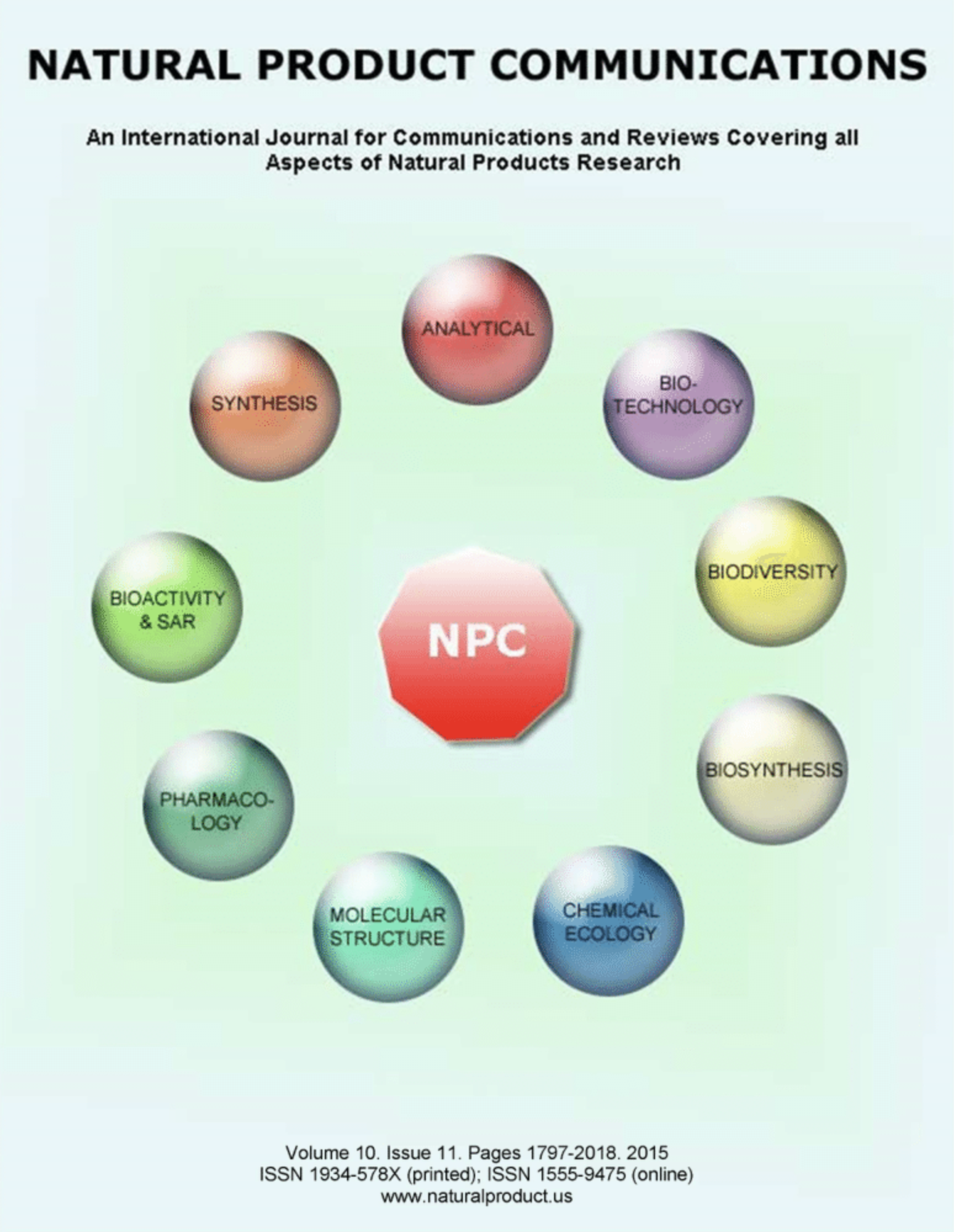
Walnut (Juglans regia L.) Oligopeptide Effects on Enhancing Memory, Cognition and Improving Sleep Quality in Teenagers and Elderly People in a Randomized Double-Blind Controlled Trial
2022 Mar Natural Product Communications Yeh AL, Chao CL, Huang WF, Lin HC, Wang CJ
Randomised Controlled Trial Sleep Cognitive Function WalnutWalnut oligopeptide improves cognitive performance and sleep quality among teenagers and elderly people.
Study Protocols
Published study protocols are detailed plans that outline the objectives, methodology, statistical analyses, and organisation of a research study that have been made publicly available for others to review and use as a reference.
Presentation Slides

Randomised Controlled Trial
A combined Mediterranean, low-FODMAP diet along with partial enteral nutrition has shown promise in reducing ulcerative colitis activity and improving patients' quality of life.
Narimani B, Sadeghi A, Daryani NE, Shahrokh S, Nilghaz M, Ghods M, Shafiee M, Shahparvari MR, Hekmatdoost A

Systematic Review
The review reveals that nutritional supplements, particularly fish oils, vitamins, trace elements, and phytochemical extracts, show promising therapeutic potential for Dry Eye Disease management.
Cong Y, Zhang Y, Han Y, Wu Y, Wang D, Zhang B

Review Article
Pumpkin seeds are recognised for their medicinal, nutritional, and cosmetic benefits, including anti-diabetic, heart disease prevention, anti-cancer, and antioxidant qualities.
Wal A, Singh MR, Gupta A, Rathore S, Rout RR, Wal P

Review Article
Almond consumption has beneficial impacts on cardiovascular diseases, diabetes, obesity, and it can improve cognitive performance and protect against skin aging.
Ouzir M

Review Article
Pomegranate and its by-products, particularly the peel, contain bioactive compounds with potential antimicrobial, anticancer and antiviral properties.
Valero-Mendoza AG, Meléndez-Rentería NP, Chávez-González ML, Flores-Gallegos AC, Wong-Paz JE, Govea-Salas M, Zugasti-Cruz A, Ascacio-Valdés JA
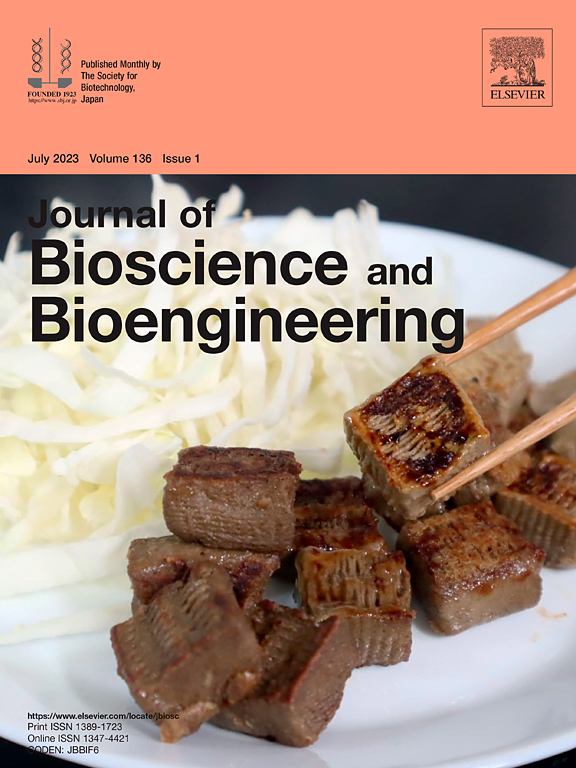
Review Article
Shoyu, offers a range of functional benefits including improved digestion, antimicrobial properties and various health-promoting properties while being allergen-free from soybeans and wheat.
Kataoka S
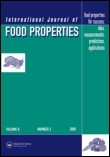
Review Article
Plums, which are rich in bioactive compounds, antioxidants, and vitamins, can help maintain blood glucose level, bone health, heart health and even treat certain cancers.
Ayub H, Nadeem M, Mohsin M, Ambreen S, Khan F, Oranab S, Rahim M, Zubair khalid M, Zongo E, Zarlasht M, Ullah S

Review Article
Nutrition, particularly an anti-inflammatory Mediterranean diet supplemented with oily fish and omega-3 supplements, can potentially reduce inflammation and improve symptoms of rheumatoid arthritis.
Nikiphorou E, Philippou E

Review Article
Sardines, being an affordable source of Omega-3 and other cardioprotective nutrients, can potentially reduce the need for Omega-3 supplementation and manage cardiometabolic diseases.
Santos HO, May TL, Bueno AA

Experimental Study
The anthocyanins from the Gardenblue variety of blueberries exhibit strong antiproliferative effects on various cancer cells, especially liver cancer cells.
Zhao F, Wang J, Wang W, Lyu L, Wu W, Li W
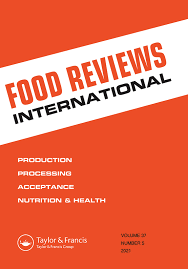
Review Article
Australian native plums contain phytochemicals that exhibit health benefits such as cardiovascular and liver protection.
Li J, Liu H, Mazhar MS, Quddus S, Agar OT, Suleria HAR

Cohort Study
The Mediterranean diet, rich in organic vegetables, fruits, whole grains, and healthy fats, can markedly improve male fertility by increasing testosterone levels and reducing sperm DNA fragmentation.
Corsetti V, Notari T, Montano L
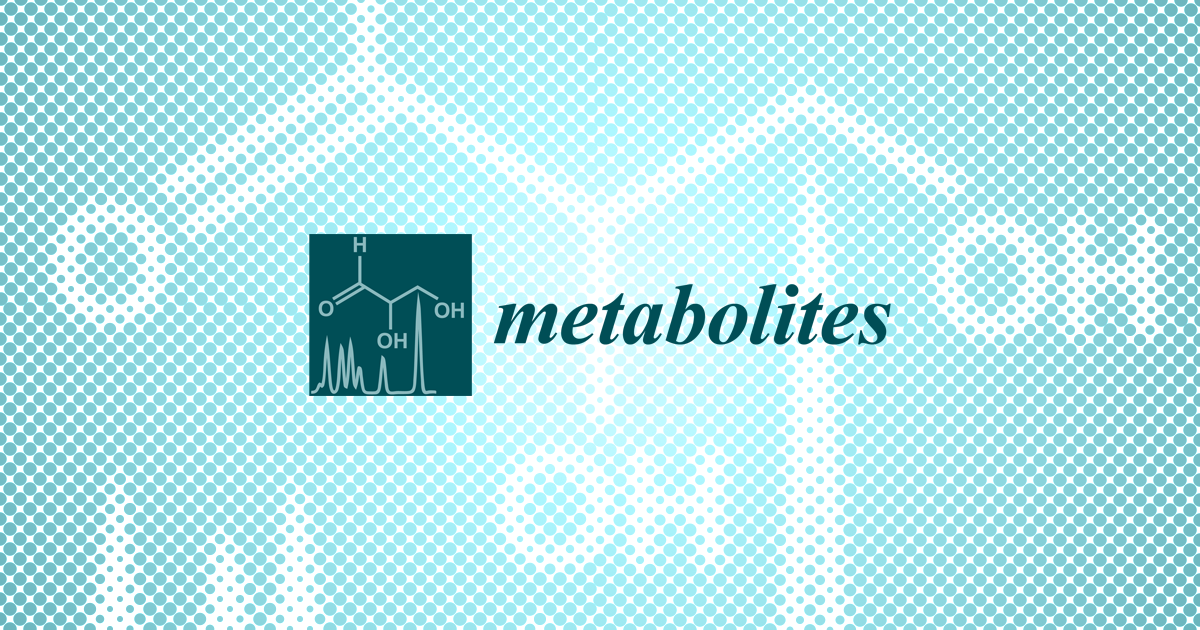
Cohort Study
Frequent consumption of sugar-sweetened coffee can adversely affect blood sugar control in patients with diabetes mellitus in Korea.
Yoo H, Park K

Randomised Controlled Trial
Fasting followed by a plant-based diet and a standard diet both positively affected rheumatoid arthritis disease activity and cardiovascular risk factors, without discernible differences.
Hartmann AM, Dell'Oro M, Spoo M, Fischer JM, Steckhan N, Jeitler M, Häupl T, Kandil FI, Michalsen A, Koppold-Liebscher DA, Kessler CS

Review Article
Adzuki beans' high lysine content, antioxidative, antibacterial, and anti-inflammatory properties highlight their dual-use as a nutritious food source and a therapeutic agent for various diseases.
Wang Y, Yao X, Shen H, Zhao R, Li Z, Shen X, Wang F, Chen K, Zhou Y, Li B, Zheng X, Lu S
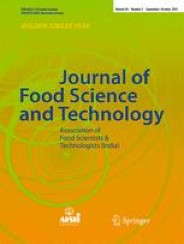
Experimental Study
Using grape seed oil in the sardine canning process enhances the lipid nutritional quality and increases the fat, protein, and ash contents.
Bouriga N, Rjiba Bahri W, Mili S, Massoudi S, Quignard JP, Trabelsi M
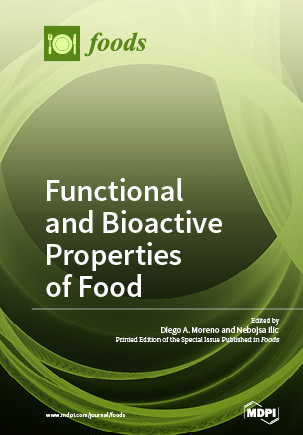
Bananas and plantains contain compounds with anti-inflammatory, anti-apoptotic, and antioxidative properties that hold promise for potentially reversing neurological disorders.
Oyeyinka BO, Afolayan AJ
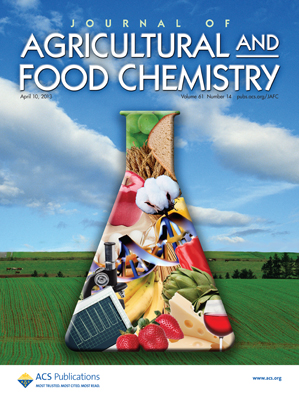
Review Article
Jujube nutrients may offer potential therapeutic benefits including antioxidant, antibacterial, anti-inflammatory functions, and improving sleep quality and learning.
Hua Y, Xu X, Guo S, Xie H, Yan H, Ma X, Niu Y, Duan JA

Randomised Controlled Trial
Fasting followed by a plant-based diet positively impacts disease activity and cardiovascular risk factors in rheumatoid arthritis patients.
Hartmann AM, Kandil FI, Steckhan N, Häupl T, Kessler CS, Michalsen A, Koppold-Liebscher DA

Review Article
Extra virgin olive oil (EVOO) has beneficial health properties and can promote cardiovascular health, lipoprotein metabolism, and diabetes management in clinical nutrition.
Jiménez-Sánchez A, Martínez-Ortega AJ, Remón-Ruiz PJ, Piñar-Gutiérrez A, Pereira-Cunill JL, García-Luna PP

Randomised Controlled Trial
Walnut oligopeptide improves cognitive performance and sleep quality among teenagers and elderly people.
Yeh AL, Chao CL, Huang WF, Lin HC, Wang CJ
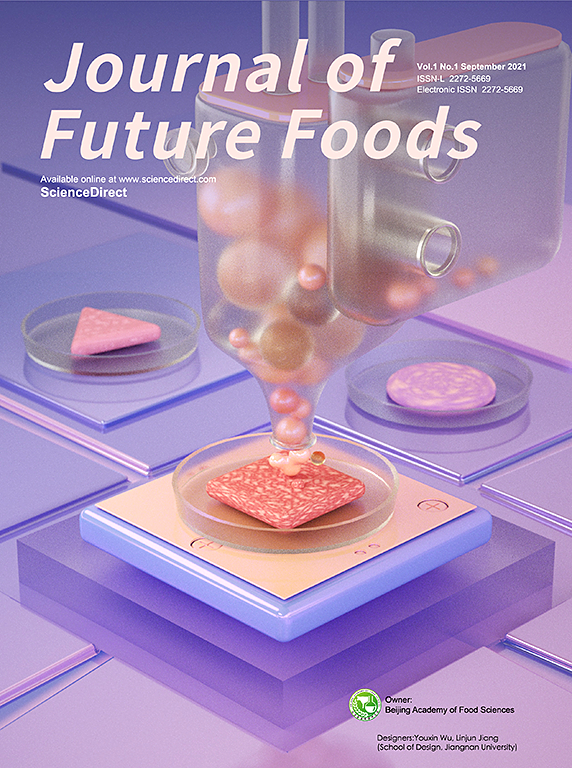
Review Article
Coconut oil has potential as a nutritional supplement for treating Alzheimer’s disease, due to its medium chain fatty acids and antioxidant properties.
Sandupama P, Munasinghe D, Jayasinghe M

Review Article
Modern extraction techniques improve the extraction of bioactive compounds from black soybeans, which have potential use in functional foods and nutraceutical components.
Kumar M, Suhag R, Hasan M, Dhumal S, Radha , Pandiselvam R, Senapathy M, Sampathrajan V, Punia S, Sayed AAS, Singh S, Kennedy JF

Review Article
Ginger, peppermint and caraway oil combination showed strong effectiveness in managing upper gastrointestinal complaints, with melatonin and marine alginate demonstrating moderate evidence.
Schulz RM, Ahuja NK, Slavin JL
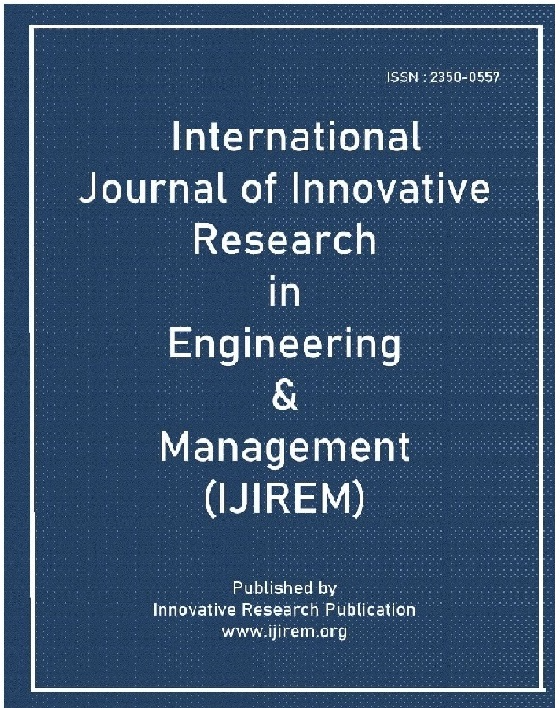
Review Article
Carrots, rich in carotenoids, flavonoids, and vitamins, have numerous health benefits including antioxidants, immune enhancement, and anti-cancer properties.
Varshney K, Mishra K
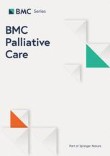
Clinical Study
Consuming chocolate with higher cocoa content can improve the nutritional status and functionality of older cancer patients in palliative care.
Vettori JC, da-Silva LG, Pfrimer K, Jordão AA, Louzada-Junior P, Moriguti JC, Ferriolli E, Lima NKC

Review Article
The flower of Chrysanthemum morifolium, widespread in Asia, has been discovered as a treatment for diverse diseases, including obesity, heart disease, and cancer, due to its beneficial phytoconstituents.
Pandey J, Bastola T, Dhakal B, Poudel A, Devkota HP

Review Article
Coconut water possesses unique compound profiles that imbue it with a broad spectrum of medical properties, incorporating aspects of nutrition, pharmacology, and disease prevention.
Rethinam P, Krishnakumar V
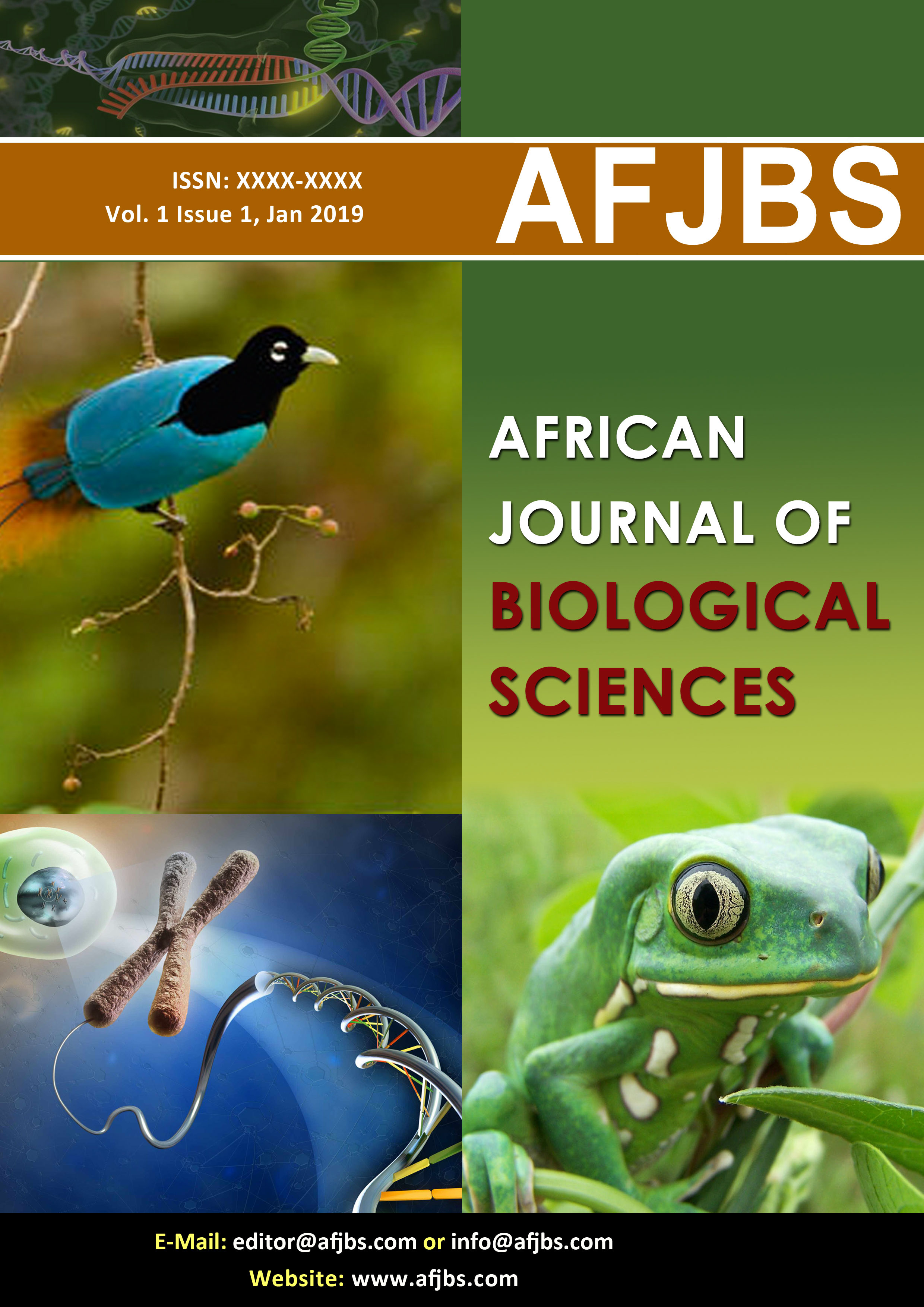
Clinical Study
Consumption of pumpkin seeds enhances the nutritional status and improves the attention deficit of deaf female children exhibiting ADHD symptoms.
Ataya H

Review Article
Fresh Hass avocados have been found to reduce cardiovascular disease risk, assist weight loss, improve cognitive function, and promote colonic microbiota health.
Dreher ML, Cheng FW, Ford NA

Randomised Controlled Trial
High avocado intake significantly reduces the intake of energy and various macro and micronutrients in Hispanic/Latino families.
Pacheco LS, Bradley RD, Denenberg JO, Anderson CAM, Allison MA
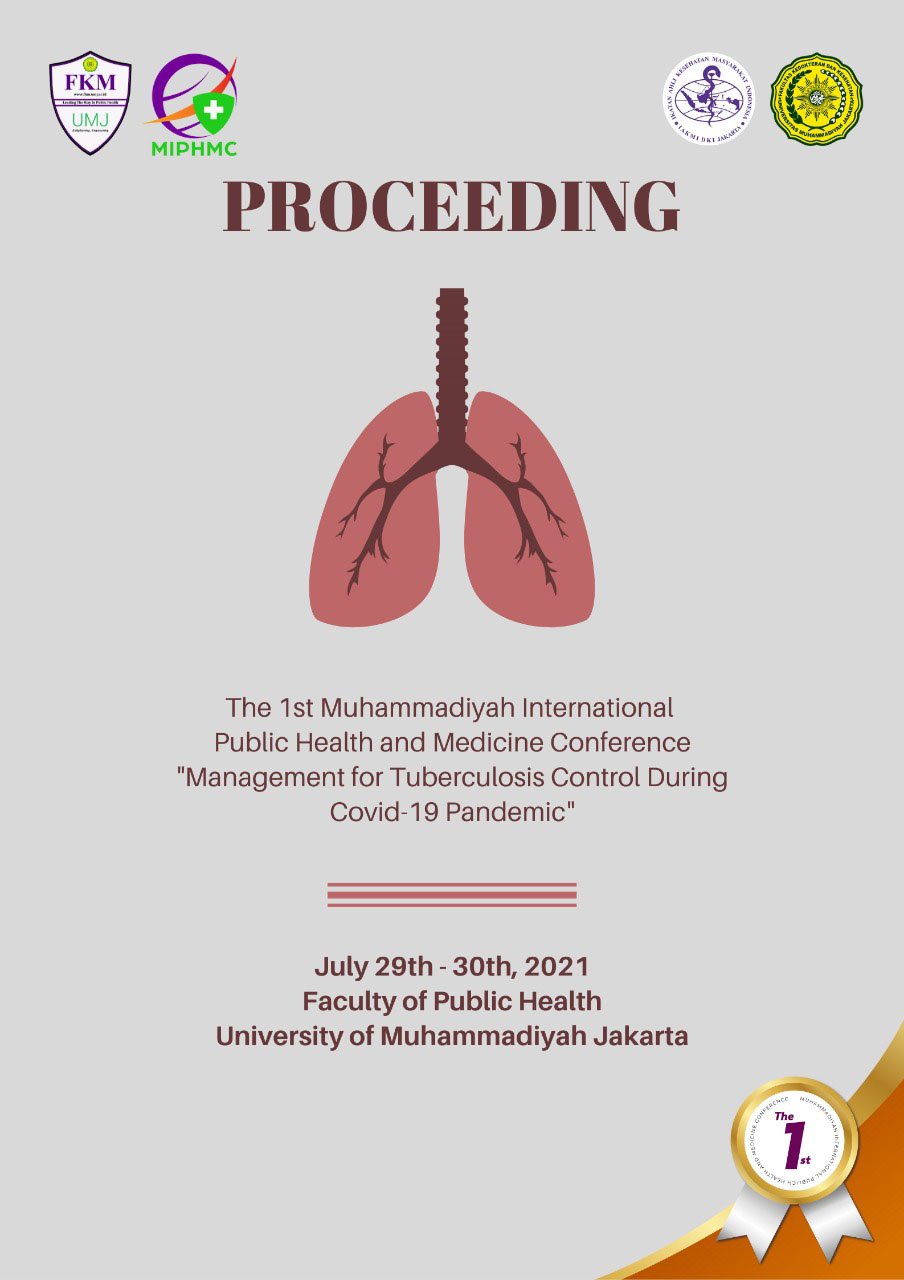
Cohort Study
Consumption of sardines can effectively prevent type 2 diabetes mellitus and hypertension, particularly in senior citizens, due to their high omega 3, EPA, and DHA content.
Nurdiana Febriyanti V

Cohort Study
Sardines are highly proven to be able to effectively prevent type 2 diabetes, prevent hypertension, and lower blood pressure, especially for senior citizens.
Nurdiana Febriyanti V
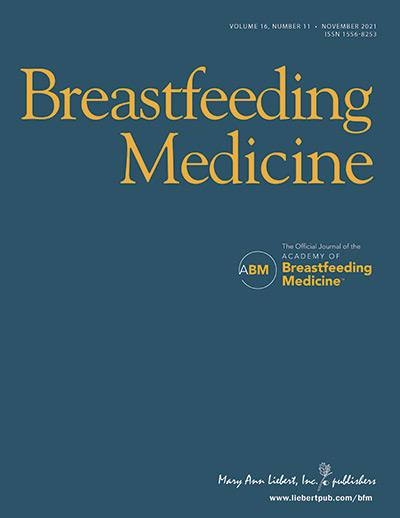
Randomised Controlled Trial
Date fruit consumption appears to be useful for promoting and increasing breast milk quantity in breastfeeding mothers. Date fruits may be an alternative galactagogue.
Modepeng T, Pavadhgul P, Bumrungpert A, Kitipichai W

Cohort Study
The consumption of avocado is associated with better cognitive function in older adults.
Cheng FW, Ford NA, Taylor MK

Experimental Study
Tiger nut and walnut supplementation in diets can improve testosterone levels and help control vasoconstriction, potentially benefiting hypertensive individuals.
Olabiyi AA, Morsch VM, Oboh G, Schetinger MRC

Review Article
Coffee consumption may contribute to the prevention of several inflammatory diseases and types of cancer, with reduced mortality risk deemed safe up to 400mg of caffeine per day.
Barrea L, Pugliese G, Frias-Toral E, El Ghoch M, Castellucci B, Chapela SP, Carignano MA, Laudisio D, Savastano S, Colao A, Muscogiuri G
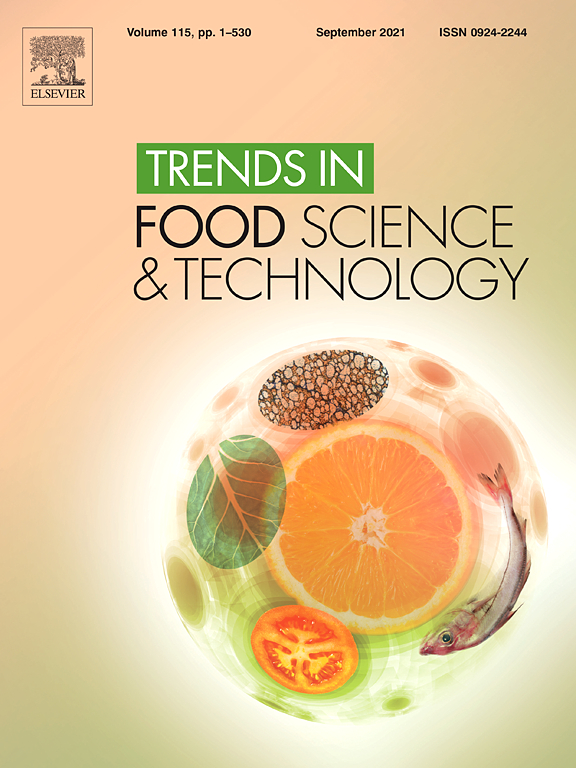
Systematic Review
From the results of 63 papers on the nutritional and phytochemical composition of Raphanus sativus, our review identified 609 phytochemicals in radish, with major constituents like flavonoids, non-flavonoid polyphenols, fat and fatty related compounds, terpenes and derivatives, and glucosinolates being reported in high concentrations in leaves and sprouts.
Sham, T. T., Yuen, A. C., Ng, Y. F., Chan, C. O., Mok, D. K., & Chan, S. W.

Review Article
The date palm enhances both male and female fertility parameters through its nutritional attributes and antioxidant functionality.
Shehzad M, Rasheed H, Naqvi SA, Al-Khayri JM, Lorenzo JM, Alaghbari MA, Manzoor MF, Aadil RM

Review Article
Date palm tree products and by-products are exceptionally rich in bioactive compounds offering potential health benefits, therefore suitable to be used as natural ingredients in food manufacturing.
Echegaray N, Gullón B, Pateiro M, Amarowicz R, Misihairabgwi JM, Lorenzo JM

Review Article
Almonds can support colonic microbiota health by promoting microflora richness and diversity, increasing the ratio of symbiotic to pathogenic microflora, and concentrations of health-promoting colonic bioactives.
Dreher ML

Review Article
Recent systematic reviews and meta-analyses of nut RCTs showed that almonds were the only nut that had a small but significant decrease in both mean body mass and fat mass, compared to control diets.
Dreher ML
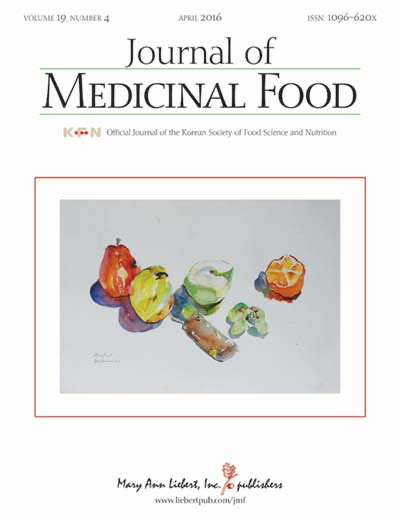
Randomised Controlled Trial
Daily consumption of tart cherry juice may reduce processes involved in accelerated atherogenesis, potentially decreasing the risk of cardiovascular diseases.
Johnson SA, Navaei N, Pourafshar S, Jaime SJ, Akhavan NS, Alvarez-Alvarado S, Proaño GV, Litwin NS, Clark EA, Foley EM, George KS, Elam ML, Payton ME, Arjmandi BH, Figueroa A
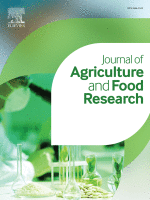
ANOVA and multivariate analysis indicated that 18 food components have significant effects on cold/hot property of food and vitamins play an important role in food cold/hot properties.
A. Xie, H. Huang, F. Kong

Review Article
Jujube fruits contain a high amount of various bioactive compounds exerting antioxidant, anti-inflammatory, antiobesity, anti-cardiovascular disease, hepatoprotective, antidiabetic, anti-microbial, anticancer, and gastrointestinal-protective effects.
Rashwan, A. K, Karim, N., Shishir, M. Rezaul Islam, Bao, T., Lu, Y., & Chen, W.
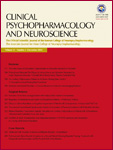
Review Article
Omega-3 polyunsaturated fatty acids supplementation during the prenatal and perinatal period could have a protective effect on neurodevelopmental disorders including ADHD, ASD, and MDD in youth.
Chang JPC, Su KP
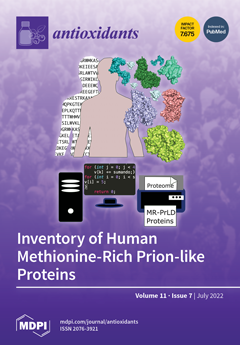
Review Article
Green tea catechins potentially contribute to maintaining joint and skeletal muscle health, mitigating symptoms of osteoarthritis and sarcopenia.
Luk HY, Appell C, Chyu MC, Chen CH, Wang CY, Yang RS, Shen CL
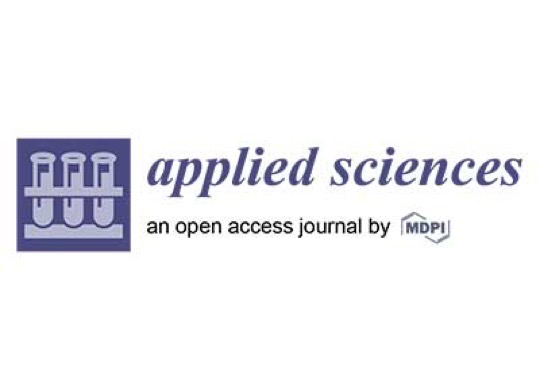
Review Article
Pomegranate possesses significant biological and nutraceutical value with potential applications against a wide spectrum of diseases due to its rich phytochemical composition.
Caruso A, Barbarossa A, Tassone A, Ceramella J, Carocci A, Catalano A, Basile G, Fazio A, Iacopetta D, Franchini C, Sinicropi MS
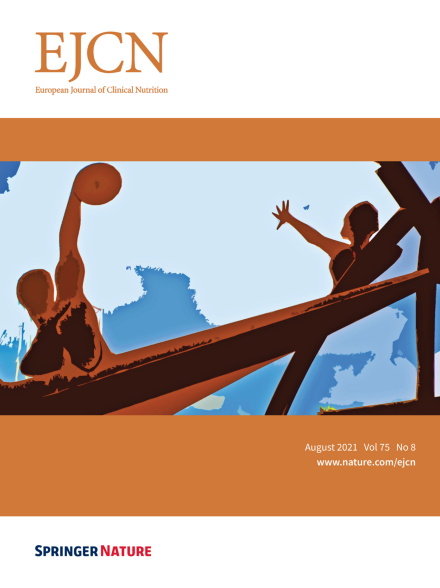
Review Article
TCM nutrition is an ancient but burgeoning discipline, and its main goal is to use food as a means to achieve balance and harmony within the body.
Zhao, X., Tan, X., Shi, H. et al
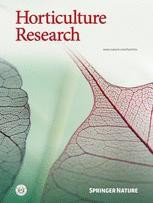
Review Article
In jujube fruit, the contents of sugar, vitamin C, and cyclic adenosine monophosphate (cAMP) are around 2, 100, and 1000 times those of apple, respectively.
Liu, M., Wang, J., Wang, L. et al.
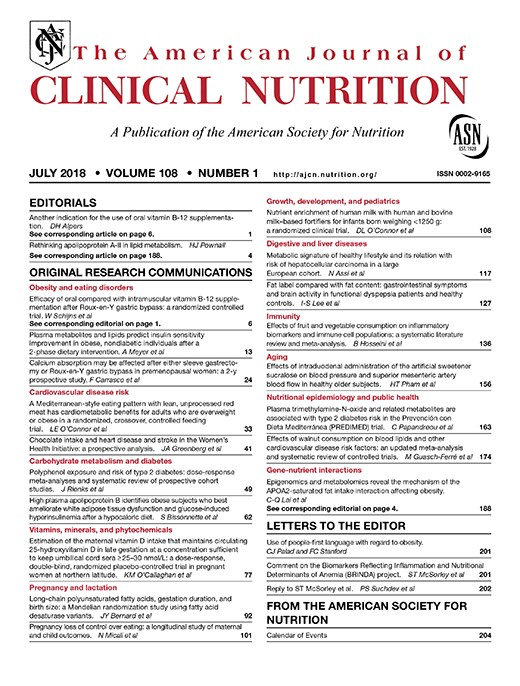
Randomised Controlled Trial
A botanical formula of lutein ester, zeaxanthin, and extracts from blackcurrant, chrysanthemum, and goji berry can effectively lessen eye fatigue and improve macular function.
Kan J, Wang M, Liu Y, Liu H, Chen L, Zhang X, Huang C, Liu BY, Gu Z, Du J

Systematic Review
Eggplant may possibly be used in the treatment of anemia, atherosclerosis, and fatty degeneration.
Meenakshi Sharma and Prashant Kaushik

Network Pharmacology
Seasonal variations influence the nutrient composition of European sardines, with lipid levels peaking from July to September and amino acid content highest during winter.
Šimat V, Hamed I, Petričević S, Bogdanović T

Review Article
Seaweed extracts and polysaccharides are effective candidates for developing drugs and functional nutrition products to treat inflammatory bowel disease.
Besednova NN, Zaporozhets TS, Kuznetsova TA, Makarenkova ID, Kryzhanovsky SP, Fedyanina LN, Ermakova SP

Review Article
Incorporating avocados into the Mediterranean diet may enhance its benefits, offering greater health flexibility and adaptability for non-Mediterranean residents.
Ford NA, Liu AG

Network Pharmacology
The antioxidant potential and substance levels in Matcha tea is affected by the harvest period and water temperature used for preparation.
Jakubczyk K, Kochman J, Kwiatkowska A, Kałduńska J, Dec K, Kawczuga D, Janda K
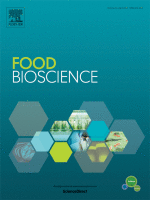
Review Article
Different varieties of dates pose impressive nutritional profiles and exhibit multiple health benefits, including anti-cancer, anti-inflammatory, and cholesterol lowering potential.
Hussain MI, Farooq M, Syed QA
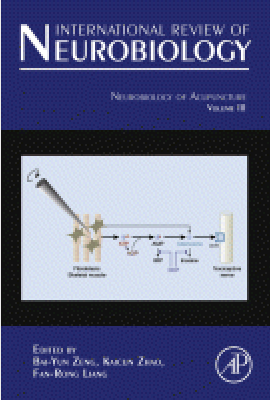
Review Article
The date fruit contains compounds such as flavonoids that can protect tissues from harm and reduce risks of illnesses like cardiovascular disease and cancer.
Bentrad N, Hamida-Ferhat A

Review Article
Avocado's nutritional and therapeutic properties show potential for novel drug discovery in prevention and treatment of prevalent diseases such as cancer, diabetes, and cardiovascular issues.
Bhuyan , Alsherbiny , Perera , Low , Basu , Devi , Barooah , Li , Papoutsis

Randomised Controlled Trial
The herbal medicine Bu Zhong Yi Qi Yang can potentially promote healing in chronic wounds resistant to standard treatments, especially in malnourished patients.
Akita S, Namiki T, Kawasaki Y, Rikihisa N, Ogata H, Tokumoto H, Tezuka T, Kubota Y, Kuriyama M, Nakamura M, Mitsukawa N

Systematic Review
The mung bean has been documented to ameliorate hyperglycemia, hyperlipemia, and hypertension, and prevent cancer and melanogenesis, as well as possess hepatoprotective and immunomodulatory activities.
Hou, D., Yousaf, L., Xue, Y., Hu, J., Wu, J., Hu, X., Feng, N., & Shen, Q. (2019).

Systematic Review
Chili pepper has preventive and therapeutic properties for many ailments such as different types of cancer, rheumatism, stiff joints, bronchitis and chest colds with cough and headache, arthritis, heart arrhythmias and used as stomachic.
Saleh BK, Omer A, Teweldemedhin B.

Systematic Review
The biomarkers that were significantly different between black seeds and white sesame seeds are highly related to the functions recorded in traditional Chinese medicine.
Wang D, Zhang L, Huang X, Wang X, Yang R, Mao J, Wang X, Wang X, Zhang Q, Li P.

Randomised Controlled Trial
Tremella fuciformis, as a nutritional supplement, safely improved subjective memory complaints and cognitive functions in individuals suffering from subjective cognitive impairment.
Ban S, Lee SL, Jeong HS, Lim SM, Park S, Hong YS, Kim JE
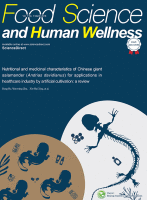
Systematic Review
The consumption of mung beans and sprouts in regular basis are not only providing nutrients, but also maintains the microbial flora in the gut, reduces the absorption of toxic compounds, decreases the menace of obesity, hypercholesterolemia, and cardiovascular diseases, and also prevents cancer and diabetes.
Kumar Ganesan, Bao junXu

Randomised Controlled Trial
Kiwifruit consumption before bedtime significantly improves sleep quality and daytime function in individuals with chronic insomnia in comparison to pear consumption.
Nødtvedt O, Hansen AL, Bjorvatn B, Pallesen S
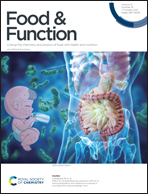
Review Article
Coffee consumption, up to three cups a day, can reduce the risk of Type-2 diabetes and metabolic syndrome in adults.
Baspinar B, Eskici G, Ozcelik AO
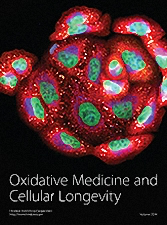
Review Article
Honeybee products like honey, propolis, and royal jelly have demonstrated potential benefits in treating metabolic diseases, cancers, and other illness types.
Pasupuleti VR, Sammugam L, Ramesh N, Gan SH

Significant amounts of small pelagic fish, a nutrient-rich food source, are unnecessarily processed into animal and pet food rather than being directed for human consumption in South Africa and Tanzania.
Isaacs M
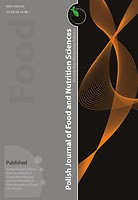
Review Article
Goji berries, classified as superfruits, possess potential beneficial implications in the dietary prevention of diseases like diabetes, cardiovascular diseases, and cancer.
Kulczyński B, Gramza-Michałowska A
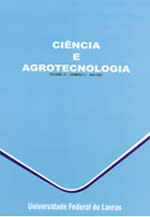
Experimental Study
Adzuki beans present anti-atherogenic, anti-thrombogenic and hypocholesterolemic effects, and the ratios PUFA: SFA and n-6:n-3 were considered appropriate for biological system maintenance of a healthy organism.
Hou D, Yousaf L, Xue Y, et al.
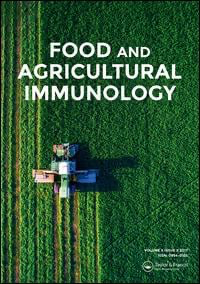
Review Article
Adzuki beans possessed strong ABTS free-radical-scavenging capacity and α-glucosidase inhibition activity.
Zhenxing Shi, Yang Yao, Yingying Zhu & Guixing Ren
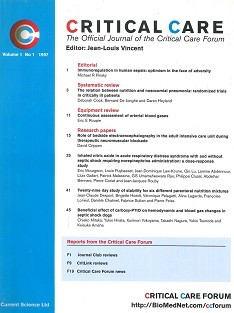
Systematic Review
Parenteral glutamine supplementation given in conjunction with nutrition support continues to be associated with a significant reduction in hospital mortality and hospital length of stay.
Paul E Wischmeyer, Rupinder Dhaliwal, Michele McCall, Thomas R Ziegler & Daren K Heyland
Executive Summary
Write an executive summary in the form of a blog article on the topic of "Research into Chinese medicine treatment for Nutrition" summarising the research below and using language that can be easily understood by patients and avoiding medical jargon using a professional and caring tone of voice.
Write an executive summary in the form of a blog article on the topic of "Researched Chinese medicine treatments for Nutrition" summarising the research below in an objective and easy to understand way, and using language that can be easily understood by patients. Group the article into Chinese medicine treatments first, followed by nutrition and other treatments. Avoid using medical jargon and use a professional and caring tone of voice.
Write me a concise but easy to understand executive summary on the topic of "Chinese medicine treatments for Nutrition" based on the following research that I will give you. Your summary should be 2 paragraphs long in Australian English spelling and include references to the studies.
A Randomised Controlled Trial published in 2024 in the journal Scientific Reports found that A combined Mediterranean, low-FODMAP diet along with partial enteral nutrition has shown promise in reducing ulcerative colitis activity and improving patients' quality of life. In the study, fifty patients with active, mild to moderate ulcerative colitis were randomly allotted one of two diets: a combined Mediterranean, low-FODMAP diet supplemented with partial enteral nutrition, or a standard diet. These diets were implemented for a duration of 6 weeks. Before and after the intervention, various indicators of the patients' conditions were measured. These variables included a disease activity index, the patients' quality of life, and concentrations of various inflammatory and oxidative stress factors in the blood. All of these were measured using tested and trustworthy questionnaires, in conjunction with blood sampling. The combined diet was found to result in significantly decreased disease activity index values, compared to both the control diet and the baseline data. Simultaneously, patients on the combined diet reported greater enhancements in their quality of life, compared to both the control group and the initial data. Lastly, the serum level of a protein called "high sensitive C-reactive protein," known to be a general marker of inflammation within the body, was found to be reduced in the combined diet group. However, changes in the serum total antioxidant capacity were found to be statistically insignificant across both groups.
A Systematic Review published in 2024 in the journal Frontiers in Pharmacology found that The review reveals that nutritional supplements, particularly fish oils, vitamins, trace elements, and phytochemical extracts, show promising therapeutic potential for Dry Eye Disease management. The methodology used in the research paper mainly focuses on evaluating different oral nutritional supplements with varied compositions and dosages, in order to assess their impact on Dry Eye Disease symptoms. These supplements include key components like fish oils, vitamins, trace elements, and extracts from plants, recognized for their potential nutritional value. Emphasizing the role of nutrition in combating ocular surface diseases, the research also emphasizes the imbalance caused by deficiencies in polyunsaturated fatty acids and vitamin insufficiencies, which can lead to ocular issues such as inflammation and oxidative stress. The results discussion outlines considerable benefits of using these supplements, not only for managing Dry Eye Disease symptoms but also potentially for overall ocular health. It was observed that nutrients in these supplements hold promising therapeutic qualities, presenting new perspectives for supplement combinations in Dry Eye Disease treatment. Beyond the well-known nutrients, it was suggested that exploring novel nutrients could help establish even more effective management strategies for Dry Eye Disease.
A Review Article published in 2024 in the journal The Natural Products Journal found that Pumpkin seeds are recognised for their medicinal, nutritional, and cosmetic benefits, including anti-diabetic, heart disease prevention, anti-cancer, and antioxidant qualities. The review article undertakes a comprehensive exploration of the nutraceutical importance of pumpkin seeds. The methodology includes an examination of the various known substances in the seeds, such as phytoestrogens, unsaturated fatty acids, and vitamin E. The study then delves into the different benefits and therapeutic uses of these components stretching from medicinal to nutritional to cosmetic applications. The results of this research are diverse and impressive, with implications for several major health sectors. Their potential anti-diabetic and hypoglycemic properties could suggest a significant role in the management and prevention of diabetes. Meanwhile, the seeds' potential in cardiovascular disease prevention could help to address one of the most pressing global health issues. Moreover, potential anti-cancer properties imply that these seeds could even have a part to play in cancer prevention. The review also described potential additional qualities, such as antidepressant, anti-helminthic (parasite-removing), and antioxidant effects.
A Review Article published in 2023 in the journal Nutrire found that Almond consumption has beneficial impacts on cardiovascular diseases, diabetes, obesity, and it can improve cognitive performance and protect against skin aging. The methodology employed in this study included analyzing a range of clinical studies centered on the health benefits linked to the consumption of sweet almond nuts. Various health outcomes correlated with almond consumption were investigated such as body weight, food intake, blood pressure, blood lipid composition, glucose and insulin levels, oxidative status, liver enzymes, and some inflammation biomarkers. The discussion of the results reveals that almond consumption has been found to create favorable alteration in aspects like body weight, food intake, blood pressure, blood lipid composition, glucose, and insulin levels, as well as oxidative status, liver enzymes, and inflammation biomarkers. These findings highlight the beneficial impact of almonds on multiple health issues including cardiovascular diseases, diabetes, and obesity. Additionally, the consumption of almonds has been associated with improved cognitive performance and protection against skin photodamage and aging.
A Review Article published in 2023 in the journal Food Chemistry Advances found that Pomegranate and its by-products, particularly the peel, contain bioactive compounds with potential antimicrobial, anticancer and antiviral properties. In the methodological approach of the study, a comprehensive review was undertaken to collate information on the bioactive components found within pomegranates and their by-products (aril, seed, and peel). The study emphasized the pomegranate peel's properties owing to its high content of the bioactive compounds. The aim was to elucidate the nutritional and functional aspects of pomegranates, particularly as a functional food. The results outlined that pomegranates, especially their peel, contain bioactive compounds, including punicalagin, punicalin, ellagic acid, punicic acid, and anthocyanins. Therefore, they have potential functional properties such as antimicrobial, anticancer, and antiviral characteristics. These results suggest that pomegranates could be explored to develop nutraceutical or functional food products due to their profound properties. The peel of the pomegranate, specifically, showcases significant potential for development due to its higher bioactive compound content compared to other parts of the fruit.
A Review Article published in 2023 in the journal Journal of Bioscience and Bioengineering found that Shoyu, offers a range of functional benefits including improved digestion, antimicrobial properties and various health-promoting properties while being allergen-free from soybeans and wheat. Japanese-style fermented soy sauce, or shoyu, has diverse functional effects. It enhances digestion and possesses antimicrobial properties against various bacteria. Shoyu contains an antihypertensive compound and exhibits anticarcinogenic, antioxidant, and anticataract effects. It inhibits histidine decarboxylase, displays antiplatelet activity, and does not contain allergens from soybeans or wheat.
A Review Article published in 2023 in the journal International Journal of Food Properties found that Plums, which are rich in bioactive compounds, antioxidants, and vitamins, can help maintain blood glucose level, bone health, heart health and even treat certain cancers. The research explored the health benefits and medicinal effects of plums, a common fruit belonging to the Prunus genus. The study focused not only on their consumption as a food source but also their uses in beverages. Special attention was given to the polyphenolic compounds, bioactive compounds, and antioxidants inherent in plums, such as phenolic acids, anthocyanins, carotenoids, and various organic acids, alongside an array of necessary minerals and vitamins. Apart from detailing traditional nutritional components, the study analyzed the unique constituents of plums like caffeic acid, chlorogenic acid and other phenolic compounds which contribute to its antioxidant property. The broader health benefits provided by these compounds spanning bone health, cardiovascular health, blood glucose stabilization, and potential impacts on gastrointestinal diseases were studied, with a particular emphasis on their possible role in the prevention and treatment of heart disease and specific kinds of cancer: lung and oral. The role of plums' low fat and high dietary fibre content in heart disease prevention was of special focus.
A Review Article published in 2023 in the journal Autoimmunity Reviews found that Nutrition, particularly an anti-inflammatory Mediterranean diet supplemented with oily fish and omega-3 supplements, can potentially reduce inflammation and improve symptoms of rheumatoid arthritis. The review examines evidence indicating a possible connection between nutrition and the risk and management of rheumatoid arthritis, an autoimmune disease having an immune-inflammatory response. The impact of different food types was considered, including pro-inflammatory and anti-inflammatory foods. Specifically, the research highlights the effectiveness of a Mediterranean diet, rich in fish and supplemented with omega-3 polyunsaturated fatty acids, in reducing inflammation and oxidation. Other factors such as herbs and spices, beverages, vitamin D, and probiotics were also taken into account. The research emphasizes the direct and indirect role of nutrition through the management of co-morbidity. The disease activity was observed to improve with dietary changes, particularly a propensity to reduce inflammation, oxidation, and beneficial effects on gut microbiota. An anti-inflammatory Mediterranean diet, supplemented with consumption of oily fish at least twice a week, and daily intake of omega-3 polyunsaturated fatty acid supplements of 2 g, has been recommended. The study also highlights the importance of rheumatologists working closely with registered dietitians to support patients in managing a well-balanced diet according to their individual needs.
A Review Article published in 2023 in the journal Frontiers in Nutrition found that Sardines, being an affordable source of Omega-3 and other cardioprotective nutrients, can potentially reduce the need for Omega-3 supplementation and manage cardiometabolic diseases. The abstract primarily acknowledges the importance of Omega-3 polyunsaturated fatty acids with respect to managing diseases related to heart health and metabolism, for instance, type 2 diabetes, hypertension, hypertriglyceridaemia, and fatty liver disease. However, these fatty acids are not the sole beneficial component of sardines. Minerals including but not limited to calcium, potassium, and magnesium as well as substances like taurine and arginine found in sardines have a significant role in controlling mild inflammation and oxidative stress which are usually present in cardiovascular diseases and hemodynamic dysfunction. The results discussed in the abstract suggest a positive correlation between consumption of sardines and potential cardiometabolic benefits. By considering the dose-response relationship effects, a pragmatic approach towards consumption of nutrients was suggested. The intake of sardines was seen not only as a means of Omega-3 supplementation but also as a comprehensive approach to enhancing cardiovascular health. The abstract concludes with an emphasis on the many beneficial nutrients found in sardines besides Omega-3, underlining the need to shift the focus from synthetic supplementation to natural dietary improvement.
A Experimental Study published in 2023 in the journal Molecules found that The anthocyanins from the Gardenblue variety of blueberries exhibit strong antiproliferative effects on various cancer cells, especially liver cancer cells. 65 varieties of blueberries were collected, focusing on their nutritional and functional values. Among these, the Gardenblue variety showed the highest anthocyanin content in fresh fruit. This content was further increased through the process of ultrasound-assisted solvent extraction and macroporous resin absorption, transforming it into a dried powder. Biological experiments were then conducted to determine the antiproliferative effects of Gardenblue anthocyanins on various cancer cell strains, such as cervical, liver, breast, and lung cells. Furthermore, these anthocyanins were combined with the chemotherapy drugs, cisplatin and doxorubicin, to assess any potential enhanced antiproliferative effects. The research results confirmed that Gardenblue anthocyanins exert a substantial antiproliferative effect on multiple cancer cell types, particularly hepatoma or liver cancer cells. These anthocyanins displayed no evident toxic effects, as measured by the MTT assay, a laboratory colorimetric technique. Notably, the antiproliferative benefits were amplified when the anthocyanins were combined with doxorubicin, a treatment for liver cancer. Analysis suggests that the anthocyanins might induce cell apoptosis (cell death) by bonding with DNA in a manner that modifies or damages the DNA, thus preventing cell proliferation. This suggests potential application of Gardenblue anthocyanin extract as a functional agent against liver cancer cells.
A Review Article published in 2023 in the journal Food Reviews International found that Australian native plums contain phytochemicals that exhibit health benefits such as cardiovascular and liver protection. The research review examined five varieties of Australian native plums: Terminalia ferdinandiana (Kakadu Plum), Davidsonia jerseyana (Davidsons Plum), Podocarpus elatus (Illawarra Plum), Pleiogynium timorense (Burdekin Plum) and Parinari nonda (Nonda Plum). The paper explored each plum variety in terms of their ideal growing conditions, their phytochemical composition, their sensory properties, and their potential applications. Extracts from different parts of the fruit including the peel, pulp, and seeds were analyzed for their capabilities to interact with cell signaling pathways, scavenge free radicals, and inhibit harmful microorganisms such as bacteria, fungi, and viruses. The findings suggest that Australian native plums not only have substantial nutritional value - being high in dietary fiber and low in fat - but they also offer a multitude of health benefits. Notably, these fruits exhibit cardiovascular and liver-protective properties. Moreover, aside from their nutritional and health value, these native plums also display impressive economic potential. For instance, the pulp of these plums could be incorporated into food and beverage creation while their wood could be utilized for furniture making.
A Cohort Study published in 2023 in the journal Current Research in Food Science found that The Mediterranean diet, rich in organic vegetables, fruits, whole grains, and healthy fats, can markedly improve male fertility by increasing testosterone levels and reducing sperm DNA fragmentation. The study designed a dietary regimen for 50 subfertile men, modifying their diets primarily with organic foods and a low-carb Mediterranean style approach, emphasized on consuming high amount of vegetables and fruits rich in various nutrients and antioxidant substances. The participants introduced whole grains, low glycemic load options, removed refined carbohydrates, ate green leafy vegetables and red fruits daily, reduced or eliminated dairy products, consumed primarily grass-fed meat and wild caught seafood, and replaced saturated fats with healthy fats such as olive oil, avocado, and nuts. After following the modified meal plan for three months, there were considerable increases in testosterone levels observed in the subjects. Alongside this, the study also noted a decrease in sperm DNA fragmentation, particularly in individuals who reduced their carbohydrate intake by 35%. These findings demonstrate the direct effects a specifically modified diet can have on improving male fertility.
A Cohort Study published in 2022 in the journal Metabolites found that Frequent consumption of sugar-sweetened coffee can adversely affect blood sugar control in patients with diabetes mellitus in Korea. This study focused on adult coffee consumption patterns in Korea using data collected from the Korea National Health and Nutrition Examination Survey between 2008 to 2020. The consuming habits of 5671 diabetic patients were analyzed considering how often they consumed a mixture of coffee with sugar and creamer, referred commonly as 3-in-1 coffee. The methods used involved assessing these patterns through a 24-hour recall. Blood sugar control was evaluated using fasting blood glucose levels and hemoglobin A1c levels, in line with the targets set by the Korean Diabetes Association. The results revealed that nearly half of the diabetic patients in this study consumed sugar-sweetened coffee. These patients demonstrated significantly higher fasting blood glucose and hemoglobin A1c levels compared to those who did not partake in such consumption. The findings also indicated an increased likelihood of patients failing to achieve their blood sugar control targets, corresponding to the frequency of their consumption of sugar-sweetened coffee.
A Randomised Controlled Trial published in 2022 in the journal Frontiers in Nutrition found that Fasting followed by a plant-based diet and a standard diet both positively affected rheumatoid arthritis disease activity and cardiovascular risk factors, without discernible differences. In this research, 53 rheumatoid arthritis patients were divided into two equal groups. One group underwent a 7-day fast and thereafter followed an 11-week plant-based diet. The second group adhered to a 12-week standard diet based on the dietary recommendations of the German society for nutrition. The main metric of comparison between the two groups was the change from baseline to 12 weeks on the Health Assessment Questionnaire Disability Index. The research showed that the fasting group noted an early improvement by day 7 and remained stable over 12 weeks. Meanwhile, the standard diet group showed slower but positive enhancements at 6 and 12 weeks. Furthermore, both dietary methods contributed to an improvement in disease activity scores of all the patients by week 12. Also, an advancement in cardiovascular risk factors, notably weight loss, was more prominent in the fasting group than the standard diet group.
A Review Article published in 2022 in the journal Molecules found that Adzuki beans' high lysine content, antioxidative, antibacterial, and anti-inflammatory properties highlight their dual-use as a nutritious food source and a therapeutic agent for various diseases. The study methodology involved comprehensive analysis of the nutritional profile and health benefits offered by adzuki beans. Different varieties of the beans were tested to assess disparities in the contents and compositions of starch, protein, fat, polysaccharides, and polyphenols. The processing characteristic components such as isolated protein and heated flavor were also examined to aid in the development of adzuki bean-based food products. The results showed that adzuki beans have diverse benefits both in terms of nutrition and health. Their proteins were found to be rich in lysine, an essential amino acid, compensating for its shortage in the everyday diet typically containing cereals. The antioxidant, antibacterial, and anti-inflammatory properties are capable of enhancing human health in multiple ways. Adzuki beans and their extracts were found to hold potential in preventing and treating conditions like diabetes, kidney disease, obesity, and even cognitive decline from a high-fat diet. This discovery highlighted the usefulness of adzuki beans as not just food but also a practical ingredient in medicinal treatments.
A Experimental Study published in 2022 in the journal Journal of Food Science and Technology found that Using grape seed oil in the sardine canning process enhances the lipid nutritional quality and increases the fat, protein, and ash contents. The researchers employed grape seed oil (GSO) in the canning process of sardines, comparing its effects on the nutritional quality of the canned fish to that of the traditional olive oil (OO). The assessment focused on the quantities of polyphenols, flavonoids, and non flavonoids present in both the GSO and OO, while also considering the levels of polyunsaturated fatty acids (PUFA) specifically linoleic acid in the GSO. The fat, protein, and ash content in the canned sardines were also tracked over a period of 90 days. In the results discussion, it was observed that GSO contained significantly higher levels of polyphenols, flavonoids, and non flavonoids than OO. Additionally, GSO was rich in PUFA, particularly linoleic acid. Following the canning process, canned sardines preserved using GSO demonstrated a significant increase in protein, fat, and ash content. Notably, the use of both GSO and OO resulted in a decrease in both atherogenic and thrombogenic indices to less than 1, implying improved lipid nutritional quality. Critically, levels of thiobarbituric acid and Total volatile base nitrogen remained below critical limits.
A published in 2022 in the journal Foods found that Bananas and plantains contain compounds with anti-inflammatory, anti-apoptotic, and antioxidative properties that hold promise for potentially reversing neurological disorders. The methodology of the study revolved around scrutinizing the bioactive properties found in bananas and plantains. Researchers pinpointed various neuroprotective mechanisms within commonly consumed fruits, specifically bananas and plantains. The study examined protein expression regulation and targeted specific gene pathways, including nuclear and tumor necrosis factors, extracellular signal-regulated and mitogen-activated protein kinases, activator protein-1, and the glial fibrillary acidic protein. In their investigations, they also considered the underutilized peel components of these fruits. The results suggest that the multitude of bioactive compounds found in both the pulp and peels of bananas and plantains perform a variety of beneficial neuroprotective activities. These range from acting as antioxidants, preventing cell death (anti-apoptotic), and reducing inflammation (anti-inflammatory), to directly influencing the functionality of the nervous system (neuromodulatory). This discovery implicates plant-based foods, specifically bananas and plantains, as potentially significant substances in combating, halting, or mitigating the pathological mechanisms underlying neurodegenerative disorders.
A Review Article published in 2022 in the journal Journal of Agricultural and Food Chemistry found that Jujube nutrients may offer potential therapeutic benefits including antioxidant, antibacterial, anti-inflammatory functions, and improving sleep quality and learning. The methodology used for this study involves a comprehensive review of existing research about Wild jujube, giving particular focus on its phytonutrients, biological functions, metabolism of bioactive compounds, and applications. The study does not seem to detail a specific experimental procedure, but instead bases its conclusions on existing literature. Various parts of the wild jujube plant, such as the fruits, seeds and leaves, were examined for their potential role as food, medicine, or health care aids. The results from the review suggest that the different parts of the wild jujube plant play many roles. The fruits have been noted for their antioxidant, antibacterial, and anti-inflammatory properties, and as ingredients preventing aging. The mature seeds have been found to have potential beneficial effects on central nervous system diseases, particularly in the treatment of insomnia and the enhancement of learning and memory.
A Randomised Controlled Trial published in 2022 in the journal Annals of the Rheumatic Diseases found that Fasting followed by a plant-based diet positively impacts disease activity and cardiovascular risk factors in rheumatoid arthritis patients. In the pilot study, patients with rheumatoid arthritis (RA) were split into two groups: one underwent a 7-day fast (consuming no more than 250 calories per day), followed by 11 weeks of a plant-based diet; the other was provided with conventional nutritional counseling according to the recommendations of the German Society for Nutrition for a total of 12 weeks. Disease activity and treatment responses were evaluated at the beginning of the experiment, day 7, week 6, and week 12. The results showed improvements in disease activity in both the fasting and conventional nutritional counseling groups. Noteworthy was the fact that the fasting group started showing improvements by day 7 as opposed to week 6 in the conventional group. Additionally, cardiovascular risk factors, such as weight and total cholesterol levels, showed more marked improvement in the fasting group compared to the conventional group. These improvements were found to be independent of any antibody status, intervention delivery method, or previous eating habits.
A Review Article published in 2022 in the journal Nutrients found that Extra virgin olive oil (EVOO) has beneficial health properties and can promote cardiovascular health, lipoprotein metabolism, and diabetes management in clinical nutrition. The methodology of this narrative review involved an extensive synthesis and illustration of the various characteristics and clinical applications of EVOO and its components such as oleic acid, hydroxytyrosol, and oleuropein. It looked at their significance in diet therapy, use in oleic acid-based enteral and parenteral nutrition formulations, and oral supplementation formulations. In their discussion of the results, the researchers found diverse health benefits associated with EVOO. Particularly, they highlighted the potential of whole EVOO in diet therapy and its minor components in supplementation to enhance cardiovascular health, control lipoprotein metabolism, and manage diabetes mellitus within a clinical nutrition framework. It was seen as a significant addition to nutritional and dietary strategies, with a potential for therapeutic application in several diseases and clinical demographics.
A Randomised Controlled Trial published in 2022 in the journal Natural Product Communications found that Walnut oligopeptide improves cognitive performance and sleep quality among teenagers and elderly people. In this randomized double-blind placebo-controlled clinical trial, 36 individuals (comprised of teenagers and elderly people) were divided into groups and given either a placebo or walnut oligopeptide (WO) at low or high dosages. The division was random and the dosage groups were composed of 6 individuals from each population group (teenagers and elderly). The administration of either substance was over a period of 90 days. The results showed notable improvements in subjects who were administered WO. Test scores on the Wechsler Adult Intelligence Scale (WAIS) showed a significant increase, indicating an improvement in cognitive ability. In addition, there was a decrease in the scores on the global Pittsburgh Sleep Quality Index (PSQI), suggesting an improvement in the quality of sleep among the subjects. Furthermore, average scores in Chinese, Mathematics, and English were significantly improved from the baseline scores among the teenagers in the WO administered group. Thus, these findings support the potential use of WO in nutritional intervention to boost memory, cognitive ability, and sleep quality in teenagers and elderly people.
A Review Article published in 2022 in the journal Journal of Future Foods found that Coconut oil has potential as a nutritional supplement for treating Alzheimer’s disease, due to its medium chain fatty acids and antioxidant properties. The study examined the unique chemical composition of coconut oil that is enriched with medium chain fatty acids, unlike long-chain fatty acids. This distinction matters because these medium chain fatty acids have a specific digestion and metabolism pathway—they bypass the lymphatic system and go straight to the liver through the portal vein. This unique attribute in absorption and metabolism allows these fats to readily form ketone bodies, which are an efficient energy source for brains, especially those experiencing cognitive impairments like Alzheimer's disease. As for the discussion of the results, the findings showed that medium-chain triglycerides in coconut oil get metabolized and absorbed to mitigate the severity of certain physiological risk factors—elevated LDL levels, hypertension, Type 2 diabetes, obesity, and insulin resistance—all risk factors that contribute to the prevalence and incidence of Alzheimer's disease. Additionally, coconut oil contains many polyphenolic compounds that serve as antioxidants, combating oxidative stress and inflammation—in turn, potentially downregulating the etiology of Alzheimer's disease. The antioxidant capacity, however, can vary depending on the processing conditions used in extraction techniques of coconut oil.
A Review Article published in 2022 in the journal Critical Reviews in Food Science and Nutrition found that Modern extraction techniques improve the extraction of bioactive compounds from black soybeans, which have potential use in functional foods and nutraceutical components. These modern extraction techniques involve the application of technologies such as microwaves, ultrasounds, and enzymes. Contrary to traditional methods that depend on simple yet toxic solvents, these contemporary options yield higher amounts of bioactive substances from black soybeans, are quicker, and are less damaging to the environment. The exact bioactive compounds extracted include anthocyanins, phenolic acids, isoflavones, and flavones, among others. Researchers discovered that black soybeans, and specifically their seed coat, are rich in various bioactive compounds. These compounds have been reported to possess numerous health benefits, showing antioxidant, anti-cancer, anti-diabetic, anti-obesity, anti-inflammatory, cardio and neuroprotective activities. The study also explores how these soybean extracts have been used in the manufacture of food products like noodles, in the development of biodegradable films with pH sensitivity, and in therapeutic applications such as promoting wound healing and alleviating inflammation. The comprehensive review, therefore, serves as a handy reference for food manufacturers and scientists, showcasing the vast potential of black soybeans in the development of functional foods and nutraceuticals.
A Review Article published in 2022 in the journal Nutrients found that Ginger, peppermint and caraway oil combination showed strong effectiveness in managing upper gastrointestinal complaints, with melatonin and marine alginate demonstrating moderate evidence. The methodology consisted of a literature review of the scientific studies pertaining to nutritional ingredients for upper gastrointestinal relief. The selection was based on recurring mentions within the literature and frequent appearance in consumer products. A predefined search for specific nutritional ingredients and terms related to upper GI health was conducted in five databases - Embase, Medline, Derwent drug file, ToXfile, and PubMed. A manual search was also undertaken for each ingredient to ensure comprehensive review. The studies that gained inclusion encompassed 16 human clinical trials assessing nine different ingredients. The products investigated were divided into categories, including botanicals - with sub-categories of fiber and combinations, and non-botanical extracts. Several products demonstrated good potential, others showed promising but moderate results, while some had limited support from the scientific research.
A Review Article published in 2022 in the journal International Journal of Innovative Research in Engineering & Management found that Carrots, rich in carotenoids, flavonoids, and vitamins, have numerous health benefits including antioxidants, immune enhancement, and anti-cancer properties. The paper provides an insightful review of carrots and their biochemical properties and wide-ranging health benefits. It presents carrots as a tuber crop rich in elements like carotenoids, vitamins, and soluble fiber, which contribute to their wellness properties. The consumption of carrots is increasing owing to their recognized value as a natural source of antioxidants with anti-cancer properties. The review also discusses the various uses of carrots and its by-products, carrot pomace, in food processing to boost the nutritional content of various products. The carrots are used in diverse culinary preparations from salads & curries to nutritionally rich processed goods like juices, dry powder, candy, pickle, and gazrailla. Furthermore, carrot pomace which is abundant in beta-carotene is used to improve products such as bakery goods and also to create a range of useful products.
A Clinical Study published in 2022 in the journal BMC Palliative Care found that Consuming chocolate with higher cocoa content can improve the nutritional status and functionality of older cancer patients in palliative care. In the conducted study, 46 older cancer patients under palliative care were divided into three groups. The control group did not have a change in their diet (CG, 15 patients). The other two groups were given intervention foods—55% cocoa chocolate (IG1, 16 patients) and white chocolate (IG2, 15 patients)—for a duration of four weeks. The primary outcome was assessed based on changes in the patients' nutritional status, as measured by the Mini Nutritional Assessment tool. Other factors examined included food consumption, body measurements, body composition, laboratory parameters, and quality of life, using the European Organization for the Research and Treatment of Cancer instrument. Discussion of the results revealed that the group consuming 55% cocoa chocolate showed an improvement in nutritional scores and functionality, as evidenced by the Mini Nutritional Assessment and the quality of life scores respectively. On the other hand, the group consuming white chocolate displayed decreased oxidative stress levels. However, body composition and anthropometric measurements remained largely unchanged across all three groups.
A Review Article published in 2022 in the journal Reference Series in Phytochemistry found that The flower of Chrysanthemum morifolium, widespread in Asia, has been discovered as a treatment for diverse diseases, including obesity, heart disease, and cancer, due to its beneficial phytoconstituents. Methodology: A comprehensive examination of Chrysanthemum morifolium was conducted to shed light on its medicinal uses and health benefits. The studies focused on its use in traditional medicine, which includes treatment for excessive internal heat, eye inflammation, fever, migraines, and hypertension. The biological properties of the flower, such as flavonoids, polyphenols, volatile oils, terpenoids, and polysaccharides were analyzed, and their antioxidant, anti-inflammatory, anti-obesity, cardioprotective, neuroprotective, anticancer, and antidiabetic effects taken into account. Discussion of results: The examination of Chrysanthemum morifolium validated the flower's antioxidant, anti-inflammatory, and anticancer properties, among others. It also indicated potential applications in preventing and treating obesity, cardiovascular diseases, neurodegenerative diseases, and diabetes. Moreover, its medicinal efficacy and safety in treating health conditions were backed by clinical studies.
A Review Article published in 2022 in the journal Reference Series in Phytochemistry found that Coconut water possesses unique compound profiles that imbue it with a broad spectrum of medical properties, incorporating aspects of nutrition, pharmacology, and disease prevention. The study utilized comprehensive analysis to assess the chemical profile of coconut water, identifying a range of components including phytohormones, enzymes, antioxidant compounds, vitamins, minerals, and phenolic compounds. These components are known to contribute to the water's biological activity and pharmacological effects, thereby enabling a raft of medicinal properties inherent to coconut water. The water was found to feature anti-microbial, anti-bacterial, anti-inflammatory, anti-hypertensive, rejuvenating, hepatoprotective, hypolipidemic, and diuretic properties. An examination of the therapeutic effects of coconut water revealed a significant impact on gastric dysfunction, dysentery, and child malnutrition alongside notable capabilities to manage hypertension. The water was found to promote exercise performance, reduce swelling, dissolve kidney stones, improve kidney function, improve digestion, relieve constipation, reduce the risk of heart disease, lower high blood pressure, and improve cholesterol levels. Consumption of tender coconut water was specifically found to reduce the risk of heart disease, help prevent Alzheimer’s disease pathologies and prevent osteoporosis in experimental animals. The unique nutritional profile of coconut water was also found to provide it with the capacity to balance body chemistry and fight cancer.
A Clinical Study published in 2021 in the journal African Journal of Biological Sciences found that Consumption of pumpkin seeds enhances the nutritional status and improves the attention deficit of deaf female children exhibiting ADHD symptoms. This study investigated 40 deaf female children, aged between 10 and 12 years, who exhibited symptoms of attention-deficit hyperactivity disorder (ADHD). These children were selected from El Amal school for the deaf and divided into two groups; control and experimental. Various data were gathered on personal and socio-economic factors, food habits, diet history, and clinical signs, along with performing the Attention Deficit Disorder Connected with Hyperactivity for Deaf Children test. The experimental group underwent a dietary intervention, consuming 50g of magnesium and iron-rich pumpkin seeds daily over three months. The results indicated an improvement in both iron and magnesium levels within the experimental group following the dietary intervention. Notably, compared to the control group, the levels of magnesium and iron were significantly higher in the experimental group after introducing pumpkin seeds into their diet. Furthermore, on evaluating the ADHD symptoms via the Attention Deficit Disorder Connected with Hyperactivity for Deaf Children test, the experimental group showed a more substantial improvement after dietary intervention than the control group. Over time, the findings demonstrated the potential beneficial effects of consuming pumpkin seeds on the nutritional status and ADHD symptoms in the studied population.
A Review Article published in 2021 in the journal Nutrients found that Fresh Hass avocados have been found to reduce cardiovascular disease risk, assist weight loss, improve cognitive function, and promote colonic microbiota health. The methodology used in this comprehensive review entailed conducting 19 clinical trials, five observational studies, and examination of several biological mechanisms. These focused on understanding and identifying the primary health effects of Hass avocados in different population groups such as healthy overweight or obese adults, older normal-weight adults, and overweight or obese women. The effects were thoroughly measured in terms of cardiovascular health, body weight, cognitive function, and colonic microbiota health. The primary health effects of Hass avocados were then linked to its unique nutritional properties - the unsaturated to saturated fat ratio, the presence of multifunctional prebiotic and viscous fiber, its low energy density, and the increase in carotenoid absorption facilitated by its oleic acid and water emulsion, particularly when combined with low-fat fruits and vegetables. The results indicated significant positive effects from consuming Hass avocados, especially when incorporated into a healthy dietary plan like the Mediterranean diet. Consumption of avocados was found to lead to reduced cardiovascular disease risk in healthy overweight or obese adults, primarily by undesirable cholesterol profiles and promoting vascular health. For overweight or obese women, it helped in weight reduction and lessened visceral fat tissue. The consumption of avocados improved cognitive function in both older normal-weight adults and young to middle age overweight adults, particularly their executive function. It was also found to enhance colonic microbiota health in overweight or obese individuals by fostering healthier microflora and fecal metabolites.
A Randomised Controlled Trial published in 2021 in the journal Nutrients found that High avocado intake significantly reduces the intake of energy and various macro and micronutrients in Hispanic/Latino families. In this research, Seventy-two Hispanic/Latino families without severe chronic disease and not following specific diets were selected. These families, each with at least three members and all residing in the same household, were divided into two groups. One group received a low allotment of avocados (three per week) and the other received a high allotment (fourteen per week). Along with the prescribed amounts of avocado, both groups underwent twelve bi-weekly nutrition education sessions over a period of six months. The study investigated the change in the families' total intake of energy, as well as macro and micronutrients as the primary outcomes. These assessments were made by comparing mean changes between groups at the end of the six months, while abiding by the intention-to-treat concept. The results showed a significant reduction in not just energy intake, but also the intake of carbohydrates, animal and vegetable protein, fats (including saturated and polyunsaturated fats), and micronutrients such as calcium, magnesium, sodium, potassium, iron, and vitamin D in the high avocado allotment group. Interestingly, the high allotment group reported a reduction of self-reported energy intake by a notable margin, much higher when compared to the decrease in the low allotment group. The study underscores the potential of culturally-appropriate plant-based interventions for improving nutritional status of at-risk families.
A Cohort Study published in 2021 in the journal Muhammadiyah International Public Health and Medicine Proceeding found that Consumption of sardines can effectively prevent type 2 diabetes mellitus and hypertension, particularly in senior citizens, due to their high omega 3, EPA, and DHA content. For the methodology, the researchers carried out a literature study to delve into the research topic. They exclusively used already available research and data for their study rather than new, hands-on investigations. They explored extensively into the health benefits and properties of sardines and how it contributes to preventing type 2 diabetes and hypertension. In their discussion of the results, it was determined that sardines have multiple beneficial properties. They discovered that sardines have anti-inflammatory and antioxidant roles, they enhance membrane fluidity and increase insulin receptors and action. Furthermore, sardines also possess hypoglycemic and hypotensive qualities. The multitude of these properties thus shows the capability of sardines to effectively prevent and lower hypertension and type 2 diabetes, especially among senior citizens.
A Cohort Study published in 2021 in the journal Muhammadiyah International Public Health and Medicine Proceeding found that Sardines are highly proven to be able to effectively prevent type 2 diabetes, prevent hypertension, and lower blood pressure, especially for senior citizens. Sardines contain anti-inflammatory, and antioxidant roles, boost cell membrane fluidity, boost the number of insulin receptors and insulin action, and also contain hypotensive and hypoglycemic effects.
A Randomised Controlled Trial published in 2021 in the journal Breastfeeding Medicine found that Date fruit consumption appears to be useful for promoting and increasing breast milk quantity in breastfeeding mothers. Date fruits may be an alternative galactagogue. Breastfeeding mothers who received 10 date fruits/day had an 11% increase in breast milk quantity from baseline to week 2, and a 23% increase from baseline to week 4, (both p < 0.05). The breast milk quantity of the breastfeeding mothers who received date fruits was significantly higher than that of the control group (p < 0.05). However, there were no differences in infant nutritional status.
A Cohort Study published in 2021 in the journal Frontiers in Nutrition found that The consumption of avocado is associated with better cognitive function in older adults. In the methodology, the researchers conducted a cross-sectional study involving 2,886 participants aged 60 or older from the National Health and Nutrition Examination Survey 2011–2014. These participants were classified into two groups: those who consumed avocado or guacamole, and those who did not. Cognitive performance was evaluated using tests for immediate and delayed recall, the Animal Fluency test, and the Digit Symbol Substitution Test, with education-dependent z-scores calculated for each participant as the education level can impact cognitive function. To control for potential influencing factors, comparisons were made between consumers and non-consumers with independent sample t-tests and advanced statistical methods like ANCOVA. The study found that those who consumed avocado showed significantly better scores across every cognitive test and the global cognitive score compared to non-consumers. Even after adjustments for potential confounders, the positive differences persisted. These findings support the conclusion that consumption of avocado correlates positively with improved cognitive function amongst elderly adults.
A Experimental Study published in 2021 in the journal Nutrients found that Tiger nut and walnut supplementation in diets can improve testosterone levels and help control vasoconstriction, potentially benefiting hypertensive individuals. Rats were used in the experiment, placed into seven distinct groups with various diet and medicinal intake combinations including basal diet controls, supplemented processed and raw tiger nut (TN) and walnut (WN) diets, and more. Before hypertension was induced with L-NAME, the rats were given their regular diet for two weeks. After this period, they began receiving L-NAME for ten subsequent days. The scientists then measured the impacts on the rats' platelet androgen levels, ectonucleotidases, and adenosine deaminase (ADA). The L-NAME treatment resulted in a considerable decline in testosterone levels in the rats. However, the groups that were fed diets supplemented with TN and WN exhibited improved testosterone levels compared to the control group, yet their luteinizing hormone levels remained unchanged. The L-NAME-treated group also saw an increase in ATP hydrolysis and ADA activity, alongside a reduction in ADP and AMP hydrolysis. These effects were substantially reversed in the groups that were fed supplemented TN and WN diets. This suggests that TN and WN could enhance testosterone levels and modulate the purinergic system in platelets, which might be a potential mechanism through which they contribute to the control of vasoconstriction.
A Review Article published in 2021 in the journal Critical Reviews in Food Science and Nutrition found that Coffee consumption may contribute to the prevention of several inflammatory diseases and types of cancer, with reduced mortality risk deemed safe up to 400mg of caffeine per day. The methodology used in this scholarly review was based on an extensive literature review using the PubMed/Medline database. As the primary research tool, this database facilitated the authors' collation and analysis of relevant studies concerning the impact of coffee consumption on health outcomes. The focus was to determine both the positive and negative aspects of coffee consumption, with an additional aim of providing dosage recommendations. The data collated from these studies was then summarised and analysed through a narrative approach, making the findings more digestible and interpretable. The findings suggested that coffee consumption may play a significant role in preventing inflammatory and oxidative stress-related diseases such as obesity, metabolic syndrome and type 2 diabetes. In addition, findings indicated that coffee consumption also seemed to have an association with a lower incidence of several types of cancer and a reduction in the risk of all-cause mortality. However, notable is the need for a time gap between coffee consumption and the intake of some drugs to avoid potential interactions. It was also concluded that the consumption of up to 400mg/day of caffeine was generally found to be safe for the average person.
A Systematic Review published in 2021 in the journal Trends in Food Science & Technology found that From the results of 63 papers on the nutritional and phytochemical composition of Raphanus sativus, our review identified 609 phytochemicals in radish, with major constituents like flavonoids, non-flavonoid polyphenols, fat and fatty related compounds, terpenes and derivatives, and glucosinolates being reported in high concentrations in leaves and sprouts. The phytochemicals identified in this review establish linkages to the underlying mechanisms on the health benefits of radish. Some of the radish compounds are known to have several health benefits, including antioxidant/redox activity, anticancer and apoptosis-inducing properties, cardiovascular and metabolic protective effect, and antimicrobial and anti-inflammatory characteristics, among others.
A Review Article published in 2021 in the journal Metabolites found that The date palm enhances both male and female fertility parameters through its nutritional attributes and antioxidant functionality. The research conducted a thorough review of the role of date palm in treating infertility. The health benefits of date palm and its varied components were explored, with a focus on their effects on reproductive parameters in both sexes. The comprehensive review shed light on how the substantial nutrients and antioxidant features of date palm can be beneficial for people dealing with infertility. In men, the study found direct links between consumption of date palm and improved hormonal levels alongside notable enhancements in seminal vesicle parameters and sperm quality. For women, this natural remedy showed a positive impact on the process of oogenesis, hormone regulation, and improving pregnancy outcomes. The focus was on the potential of date fruit as a natural enhancer of fertility, downplaying the role of any synthetic or invasive medical interventions. The study thus testifies to the innovative use of a widely available natural resource in addressing a pressing health issue.
A Review Article published in 2021 in the journal Food Reviews International found that Date palm tree products and by-products are exceptionally rich in bioactive compounds offering potential health benefits, therefore suitable to be used as natural ingredients in food manufacturing. This research paper undertakes a review study summarizing the sensory properties, nutritional profiles, and health-promoting biocompounds found in date fruit and its by-products. By-products include low-quality dates, pits, leaves, and pollen; all derived during the date fruit processing. The research also followed up on recent findings regarding these products' potential development for new functional foods. The discussion assesses that date fruits and their by-products are deeply rich in unique bioactive compounds like hydroxycinnamic and hydroxybenzoic acids, flavonoids, tannins, carotenoids, tocopherols, tocotrienols, phytosterols, and phytoestrogens. These compounds were noted to contain potential health-boosting properties, making them suitable for use as nutraceutical ingredients in different food formulations. These formulated foods can aid in meeting the increasing demand for products made with natural ingredients among consumers. Also, it's noted that food matrices serve as excellent vehicles to ensure the bioavailability of these biomolecules present in the date palm products.
A Review Article published in 2021 in the journal Nutrients found that Almonds can support colonic microbiota health by promoting microflora richness and diversity, increasing the ratio of symbiotic to pathogenic microflora, and concentrations of health-promoting colonic bioactives. This narrative review of 64 RCTs and 14 meta-analyses and/or systematic reviews presents a more in-depth analysis of almond clinical trials and their effects on weight measures, metabolic health biomarkers and outcomes, and colonic microbiota health than typically described in systematic reviews and/or meta-analyses. Almonds have one of the largest portfolios of RCTs on weight measures, metabolic health, and colonic microbiota of any food. These RCTs consistently support an important role for almonds in reducing body and fat mass, other weight measures, and promoting metabolic health as a premier snack for precision nutrition diets
A Review Article published in 2021 in the journal Nutrients found that Recent systematic reviews and meta-analyses of nut RCTs showed that almonds were the only nut that had a small but significant decrease in both mean body mass and fat mass, compared to control diets. The biological mechanisms for almond weight control include enhanced displacement of other foods, decreased macronutrient bioavailability for a lower net metabolizable energy (ME), upregulation of acute signals for reduced hunger, and elevated satiety and increased resting energy expenditure.
A Randomised Controlled Trial published in 2020 in the journal Journal of Medicinal Food found that Daily consumption of tart cherry juice may reduce processes involved in accelerated atherogenesis, potentially decreasing the risk of cardiovascular diseases. In this randomized, single-blind, placebo-controlled, parallel-arm pilot clinical trial, 19 men and women aged between 20 to 60 years who have metabolic syndrome participated. They were assigned to consume either 240ml of tart cherry juice or an isocaloric placebo-control drink twice daily for a period of 12 weeks. Initial evaluations on arterial stiffness (determined through pulse wave velocity), brachial and aortic blood pressures, wave reflection or augmentation index, and blood markers for cardiovascular and metabolic health were established as their baseline values. Despite observing no significant alterations in hemodynamics, arterial stiffness, or other assessed blood biomarkers, there was a noted decrease in oxidized low-density lipoprotein and soluble vascular cell adhesion molecule-1 levels in the tart cherry juice group compared to the control group at the end of 12 weeks. In addition, there was a trending lower total cholesterol level in the tart cherry group versus the control at the end of the trial. These results suggest that daily tart cherry juice consumption may help decrease processes involved in the rapid progression of atherogenesis.
A published in 2020 in the journal Journal of Agriculture and Food Research found that ANOVA and multivariate analysis indicated that 18 food components have significant effects on cold/hot property of food and vitamins play an important role in food cold/hot properties. The contents of 32 nutritional components and calorie were used through ANOVA and multivariate analysis to evaluate the most important variables affecting food warming and cooling characteristics, and the interaction effect of different components on food properties. Mathematical equations were derived to correlate the component variables and the probability of the food being cold/hot. The results indicate vitamins (B6, folate, and VA) are among the most important influencing factors. Logit functions were developed to evaluate the hot and cold characteristics of a food based on its compositional data. The obtained information from this study is expected to enhance the understanding of the link between food composition and its cold/hot properties which may provide another method to evaluate the food diet and their health effect.
A Review Article published in 2020 in the journal Journal of Functional Foods found that Jujube fruits contain a high amount of various bioactive compounds exerting antioxidant, anti-inflammatory, antiobesity, anti-cardiovascular disease, hepatoprotective, antidiabetic, anti-microbial, anticancer, and gastrointestinal-protective effects. The scientific evidence has shown that jujube fruits contain a high amount of various bioactive compounds, including ascorbic acid, triterpenic acids, phenolic acids, amino acids, saponins, cerebrosides, flavonoids, polysaccharides, and mineral constituents. These phytoconstituents play important roles to suppress different diseases, exerting the antioxidant, anti-inflammatory, antiobesity, anti-cardiovascular disease, hepatoprotective, antidiabetic, anti-microbial, anticancer, and gastrointestinal-protective effects.
A Review Article published in 2020 in the journal Clinical Psychopharmacology and Neuroscience found that Omega-3 polyunsaturated fatty acids supplementation during the prenatal and perinatal period could have a protective effect on neurodevelopmental disorders including ADHD, ASD, and MDD in youth. The research implemented supplementation of omega-3 polyunsaturated fatty acids also known as Omega-3 PUFAs, in different quantities and durations to youth with attention deficit hyperactivity disorder (ADHD), major depressive disorder (MDD) and autism spectrum disorder (ASD). This was carried out based on suggested dosage and duration from various randomized controlled trials and systemic literature reviews. It was observed that omega-3 PUFAs were essential nutrients not just for physical health but also for mental health, more so during the prenatal and perinatal stages of development. The results demonstrated that clinical symptoms improved in youth with ADHD, MDD and ASD after they were supplemented with Omega-3 PUFAs, especially in cases where there was high inflammation or low baseline Omega-3 index present. The research showed very promising evidence that Omega-3 PUFAs had positive effects on lethargy and hyperactivity symptoms in ASD. There was also an inclination that Omega-3 PUFAs levels and inflammation could be potential markers for treatment response in ADHD and MDD.
A Review Article published in 2020 in the journal Antioxidants found that Green tea catechins potentially contribute to maintaining joint and skeletal muscle health, mitigating symptoms of osteoarthritis and sarcopenia. The research begins by providing an understanding of osteoarthritis, a degenerative inflammatory disorder of articular cartilage, and sarcopenia, a condition characterized by loss of muscle mass and strength. It explores their prevalence, causes such as excessive inflammation and oxidative stress, mitochondrial dysfunction, and diminished autophagy. It then delves into the role of green tea catechins in joint health, including their influence on inflammatory signaling agents, anabolic mediators, and miRNAs expression. This leads to a decrease in chondrocyte death and collagen degradation, thereby offering cartilage protection. The investigation also examines the effects of green tea catechins on skeletal muscle health. It highlights their role in maintaining an equilibrium between protein synthesis and degradation, and enhancing the synthesis of mitochondrial energy metabolism. The review thus suggests a positive impact of green tea catechins on joint and muscle health, helping to maintain favorable muscle homeostasis and reduce muscle atrophy associated with aging. It ends by pointing out the limitations of the current study and proposing future research directions.
A Review Article published in 2020 in the journal Applied Sciences found that Pomegranate possesses significant biological and nutraceutical value with potential applications against a wide spectrum of diseases due to its rich phytochemical composition. The methodology used in the reported research was primarily a review and analysis of the biological composition of pomegranates. The composition was analyzed closely with attention given to flavonoids, ellagitannins, proanthocyanidins, mineral salts, vitamins, lipids, and organic acids to gauge their nutraceutical value and potential health benefits. In regards to discussion of results, in-depth studies of pomegranate's biological and functional properties provided insight into its potential applications against a wide spectrum of diseases. These include not just neoplastic, cardiovascular and viral diseases but also inflammatory, metabolic, microbial, intestinal, reproductive and skin diseases. The wide health-promoting properties of pomegranate and its bioactive compounds demonstrate its considerable scientific and commercial potential in the field of nutraceuticals.
A Review Article published in 2020 in the journal European Journal of Clinical Nutrition found that TCM nutrition is an ancient but burgeoning discipline, and its main goal is to use food as a means to achieve balance and harmony within the body. Compared with modern nutrition, it has unique beneficial concepts, such as the holism, diet suggestions based on syndrome differentiation, the idea that the spleen–stomach is the “root” of post-heaven, and the homology of medicine and food.
A Review Article published in 2020 in the journal Horticulture Research found that In jujube fruit, the contents of sugar, vitamin C, and cyclic adenosine monophosphate (cAMP) are around 2, 100, and 1000 times those of apple, respectively. The fruit is particularly rich in nutrients, and its contents of sugar, vitamin C and B, cyclic nucleotide, proline, triterpenic acid, potassium, iron, and zinc are the highest among many fruits. The contents of sugar, vitamin C, and cyclic adenosine monophosphate (cAMP) are around 2, 100, and 1000 times those of apple, respectively. The fruit is also a rich source of polysaccharides, triterpenic acids, flavonoids, alkaloids, polyphenols, and pigments.
A Randomised Controlled Trial published in 2020 in the journal The American Journal of Clinical Nutrition found that A botanical formula of lutein ester, zeaxanthin, and extracts from blackcurrant, chrysanthemum, and goji berry can effectively lessen eye fatigue and improve macular function. Research methodology involved the distribution of 360 randomly selected participants into four groups where they received placebos and three varied doses of a botanical formula. This formula, given in chewable tablets comprised of 6 mg, 10 mg, or 14 mg of lutein. Each participant was administered these once daily over a period of 90 days, and had three check-ins at the beginning, at day 45, and finally on day 90 of the study. The results of the study indicated that the botanical formula effectively improved the individual scores of participants on eye fatigue symptoms like eye soreness, blurred vision, dry eyes, foreign body sensation, and tearing. Using the formula resulted in a notable decrease in the total score of eye fatigue symptoms at both the 45-day and 90-day intervals as compared to the placebo while also significantly improving visuognosis persistence time. Tear secretion improvement was observed in the groups having 10mg and 14mg lutein formula, supported by the Schirmer test. Furthermore, the results showed an increase in macular pigment optical density with all three doses of the formula, but no significant alterations were observed in the retinal thickness and retinal volume among all the groups at both check-ins.
A Systematic Review published in 2020 in the journal Applied Sciences found that Eggplant may possibly be used in the treatment of anemia, atherosclerosis, and fatty degeneration. Eggplant is progressively becoming more well-known due to its composition of carbohydrates, proteins, vitamins, and several other bioactive compounds, such as phenolic acids. Eggplant also contains traces of minerals such as copper, zinc, and iron. Due to this biochemical composition, eggplant may possibly be used in the treatment of anemia, atherosclerosis, and fatty degeneration. Its antioxidant property potentially reduces the risk of various types of cancer, protects against cardiovascular diseases, and prevents acute respiratory infections. Further, eggplant fibers help in digestion by removing toxins and harmful materials from the stomach and reducing colon cancer. Plant polyphenols present in eggplants can help protect cell membranes and boost the brain’s memory function.
A Network Pharmacology published in 2020 in the journal Foods found that Seasonal variations influence the nutrient composition of European sardines, with lipid levels peaking from July to September and amino acid content highest during winter. The methodology consisted of analyzing the proximate composition of European sardines from the Adriatic Sea over a period of one year. The nutritional profiles, focusing on free amino acid and fatty acid, were quantified monthly to discern any seasonal variations. The study paid special attention to quantities of bioactive lipids such as omega-3 fatty acids, and essential amino acids, as these are crucial for determining the nourishing value of the sardines for both industrial processing and for health benefits to consumers. The findings revealed that the nutritional content in sardines displays seasonal variation. The lipid content topped out from July to September, whereas the highest total amino acid content occurred during the winter, from January to March, with histidine, arginine, and threonine being most present. Interestingly, the study noted significant quantities of essential free amino acids throughout the year, with particular surges in March and dips in May. The fatty acid profile predominantly consisted of omega-3 fatty acids, with sardines showcasing high concentrations of eicosapentaenoic and docosahexaenoic acids, which were especially abundant from July to September.
A Review Article published in 2020 in the journal Marine Drugs found that Seaweed extracts and polysaccharides are effective candidates for developing drugs and functional nutrition products to treat inflammatory bowel disease. The methodology summarized in this research paper encompasses examining natural compounds, specifically derived from seaweed, which could potentially serve as therapeutic agents for IBD. Concentrating on the unique structural features of algal polysaccharides, the researchers observed their interaction with several factors associated with IBD, such as proinflammatory cytokines, chemokines, adhesion molecules, intestinal epithelial cells, and reactive oxygen and nitrogen. In discussing the results, it was seen that the seaweed extracts and polysaccharides show promise in influencing key therapeutic targets related to IBD, suggesting their potential utility in the development of treatment options for patients. These include drugs, biological food additives, and functional nutrition products. This conclusion was drawn by noting the influence of these extracts and polysaccharides on immune and epithelial cells as well as intestinal microorganisms.
A Review Article published in 2020 in the journal Frontiers in Nutrition found that Incorporating avocados into the Mediterranean diet may enhance its benefits, offering greater health flexibility and adaptability for non-Mediterranean residents. The research approach starts with an evaluation of the nutritional value of a Mediterranean diet, which is traditionally rich in fruits, vegetables, and oleic-acid-rich olive oil. This diet has been associated with lower risks of several chronic diseases. Simultaneously the paper introduces the subject of rising obesity rates globally. The study then evaluates the potential benefits of modifying the Mediterranean diet to include non-traditional fruits and vegetables that could provide more variety in food choices and greater adaptability for those living outside the Mediterranean region. The avocado, a fruit native to the Mediterranean climate and rich in beneficial nutrients like oleic acid and fiber, is proposed as a potential addition. Discussion of the study reveals an interesting proposition: including avocado in the traditional Mediterranean diet, which is not commonly done. The avocado's health benefits and nutritional value are then analysed in depth, drawing from existing research studies, to substantiate the recommendation for incorporating this fruit into the Mediterranean dietary pattern. The discussion concludes by highlighting the potential enhanced health benefits that can result from this inclusion, thereby presenting a compelling case for the suggested adjustment.
A Network Pharmacology published in 2020 in the journal Foods found that The antioxidant potential and substance levels in Matcha tea is affected by the harvest period and water temperature used for preparation. The study's methodology was set to evaluate the antioxidant capacity and significant component levels of traditional and daily Matcha green tea, originating from Japan. It focused on the content of essential vitamins, flavonoids, and other polyphenols. The variations in these components were examined by making infusions at different temperatures - 25°C, 70°C, 80°C, and 90°C. Approximately 1.75g of the plant material was used with 100mL of distilled water in these preparations. The comparison was made between Matcha tea from the first and second harvests, as well as from the second and third harvests. In the discussion of results, infusions made from the daily Matcha harvest, especially the one prepared at 90°C, were observed to have the highest amount of substances possessing antioxidant properties. Notably, the concentrations of these beneficial substances tended to vary according to the timing of the plant's harvest and the temperature of water used for infusion preparation. Particularly, flavonoids, polyphenols, and vitamin C showed appreciable fluctuation across these variables, confirming a vital link between preparation details and the health benefits furnished by Matcha green tea.
A Review Article published in 2020 in the journal Food Bioscience found that Different varieties of dates pose impressive nutritional profiles and exhibit multiple health benefits, including anti-cancer, anti-inflammatory, and cholesterol lowering potential. The study embarked on a systematic literature review, utilizing the Scopus, Centre for Agriculture and Bioscience International, Google Scholar and Web of Science databases to assess works published from 1971 to 2017, resulting in 270 relevant articles. The focus was to evaluate the nutritional profile and nutraceutical attributes of different date varieties worldwide, particularly from their cultivation hotspots in West Asia and North Africa. The findings indicate that date fruit is a rich, affordable source of numerous nutrients, including carbohydrates, proteins, amino acids, dietary minerals, vitamins, and various health-promoting compounds such as polyphenols, anthocyanins, tannins and flavones. The fruit's constituents, particularly beta-glucan, show a vast array of beneficial effects on health, functioning as antioxidant, anti-tumor, immune-modulating, anti-diabetic, and cholesterol-lowering agents, as well as promoting beneficial gut microflora growth. Preclinical studies also underline the beneficial effects of date fruit in protecting against a range of health conditions like cardiovascular disease, diabetes, and various forms of cancer. The positive health impacts were observed in different parts of the fruit, namely the flesh, peel, and pits.
A Review Article published in 2020 in the journal International Review of Neurobiology found that The date fruit contains compounds such as flavonoids that can protect tissues from harm and reduce risks of illnesses like cardiovascular disease and cancer. The research focused on the properties of the date palm fruit (Phoenix dactylifera), known to be rich in bioactive compounds such as polyphenols. A particular interest was given to flavonoids, a group of phytochemicals renowned for their high antioxidant capacity, and other useful traits. The study investigated the fruit's capability in protecting tissues against harmful effects, examining the interference with enzymes that prompt the formation of damaging free radicals. In the discussions, it was indicated that the date fruits were not only appreciated for their organoleptic properties but also for their biological activities. The protective properties of the fruit against harmful effects arose from flavonoids and their ability to inhibit the formation of free radicals. Flavonoid-rich date fruit consumption was suggested to correlate to a decreased risk of various diseases, including cardiovascular diseases and cancer. This aspect uplifts date fruit as a prized option for consumers seeking health benefits from their diet.
A Review Article published in 2019 in the journal Antioxidants found that Avocado's nutritional and therapeutic properties show potential for novel drug discovery in prevention and treatment of prevalent diseases such as cancer, diabetes, and cardiovascular issues. The methodology utilized in this review was an extensive summary and assessment of research conducted in recent decades with emphasis on avocado's nutritional and therapeutic properties, along with its unique biochemical profile. Special focus was given to the major metabolites of avocado, their antioxidant properties, as well as their bioavailability and pharmacokinetic features. The discussion of results involved highlighting the potential of avocado in novel drug discovery for the prevention and treatment of a variety of diseases like cancer, microbial, inflammatory, diabetes, and cardiovascular diseases. Emanating from the unique bioactive compounds and antioxidant contents of avocado, it’s clear that the fruit has much more to offer in terms of medicinal value than is currently explored today.
A Randomised Controlled Trial published in 2019 in the journal Wound Repair and Regeneration found that The herbal medicine Bu Zhong Yi Qi Yang can potentially promote healing in chronic wounds resistant to standard treatments, especially in malnourished patients. In this investigation, a prospective, randomized trial was conducted on 18 patients with unresponsive chronic wounds. These patients were split into two groups: a medication group treated daily with 7.5g of oral Hochu-ekki-to, and a control group who didn't receive this treatment. The status of wound healing was assessed over a 12-week period, where it was scored based on factors such as depth, inflammation/infection, size, granulation tissue, necrotic tissue, exudate, and pocket size. In the study, all patients in the medication group showed progress in wound healing at the end of 12 weeks. Conversely, only three patients in the control group showed comparable progress. This marked healing in the medication group was significantly noticeable after the 8-week mark. Hence, the study concluded that Hochu-ekki-to can be considered a beneficial adjunct therapy in managing chronic wounds, especially for patients suffering from malnutrition.
A Systematic Review published in 2019 in the journal Nutrients found that The mung bean has been documented to ameliorate hyperglycemia, hyperlipemia, and hypertension, and prevent cancer and melanogenesis, as well as possess hepatoprotective and immunomodulatory activities. The mung bean has been documented to ameliorate hyperglycemia, hyperlipemia, and hypertension, and prevent cancer and melanogenesis, as well as possess hepatoprotective and immunomodulatory activities. These health benefits derive primarily from the concentration and properties of those active compounds present in the mung bean. Vitexin and isovitexin are identified as the major polyphenols, and peptides containing hydrophobic amino acid residues with small molecular weight show higher bioactivity in the mung bean.
A Systematic Review published in 2018 in the journal MOJ Food Processing & Technology found that Chili pepper has preventive and therapeutic properties for many ailments such as different types of cancer, rheumatism, stiff joints, bronchitis and chest colds with cough and headache, arthritis, heart arrhythmias and used as stomachic. A vanilloid receptor known as VR1 which was later found to be member of the family TRP and was called TRPV1 (transient receptor potential vanilloid subtype 1) is the receptor for capsaicin and is universally distributed in the brain, sensory nerves, dorsal root ganglia, bladder, gut, and blood vessels. Capsaicin is activate and then desensitize or block VR1 and was found to be powerful drug in animal models of human disease. Capsaicin plays a potential role in cardiometabolic protection through the activation of TRPV1 in different target organs or tissues, which suggests that TRPV1 may be a promising target for the management of cardiometabolic diseases such as obesity, hypertension, dyslipidemia, diabetes and atherosclerosis. However, association between the dosage of dietary capsaicin and the effect on cardiometabolic protection need to be clarified for determining the daily usage or intake of capsaicin or its derivatives. The activation of VR1 by capsaicin make it possible to be involved in various human disease states ranging from genetic pain insensitivity to chronic pain syndromes. In addition to that VR1 has much broader clinical benefits than mere pain case. Chili pepper has preventive and therapeutic properties for many ailments such as different types of cancer, rheumatism, stiff joints, bronchitis and chest colds with cough and headache, arthritis, heart arrhythmias and used as stomachic. Chili preparations for treating ailments can be standard capsaicin, pharmaceutically prepared gels, creams and plasters, essential oils distilled from pods, powder prepared by crashing pods and extracts by soaking pods in water or ethanol.
A Systematic Review published in 2018 in the journal Molecules found that The biomarkers that were significantly different between black seeds and white sesame seeds are highly related to the functions recorded in traditional Chinese medicine. Chemical composition of secondary metabolites is of great importance for quality control of agricultural products. Black sesame seeds are significantly more expensive than white sesame seeds, because it is thought that black sesame seeds are more beneficial to human health than white sesame seeds. However, the differences in nutrient composition between black sesame seeds and white sesame seeds are still unknown. The current study examined the levels of different metabolites in black and white sesame seeds via the use of a novel metabolomics strategy. Using widely targeted metabolomics data, we obtained the structure and content of 557 metabolites, out of which 217 metabolites were identified, and discovered 30 metabolic pathways activated by the secondary metabolites in both black and white sesame seeds. Our results demonstrated that the main pathways that were differentially activated included: phenylpropanoid biosynthesis, tyrosine metabolism, and riboflavin metabolism. More importantly, the biomarkers that were significantly different between black seeds and white sesame seeds are highly related to the functions recorded in traditional Chinese medicine. The results of this study may serve as a new theoretical reference for breeding experts to promote the genetic improvement of sesame seeds, and therefore the cultivation of higher quality sesame varieties.
A Randomised Controlled Trial published in 2018 in the journal Journal of Medicinal Food found that Tremella fuciformis, as a nutritional supplement, safely improved subjective memory complaints and cognitive functions in individuals suffering from subjective cognitive impairment. Seventy-five individuals with subjective cognitive impairment were included in an 8-week, double-blind, randomized, placebo-controlled trial. Participants received either Tremella fuciformis (300mg/day or 600mg/day) or a placebo. The key point of assessment was fluctuations in questionnaire scores evaluating subjective memory complaints. Secondary measures involved changes in short-term memory and executive function performances, assessed using standardized cognitive tests. Effects on grey matter volume were examined using voxel-based morphometry. The Tremella fuciformis group showed significant improvements in total questionnaire scores related to subjective memory complaints compared to the placebo group. Alongside this, substantial improvements were recorded in short-term memory and executive functions within the same group. Factors such as left precuneus, right supramarginal gyrus, right middle frontal gyrus, and right postcentral gyrus revealed significant group-to-visit interactions with no notable increase in adverse events among both high dose and low dose Tremella fuciformis groups, and the placebo group. These findings emphasize the potential of Tremella fuciformis as a safe nutritional supplement to alleviate subjective memory complaints and boost cognitive functions in individuals with subjective cognitive impairment.
A Systematic Review published in 2018 in the journal Food Science and Human Wellness found that The consumption of mung beans and sprouts in regular basis are not only providing nutrients, but also maintains the microbial flora in the gut, reduces the absorption of toxic compounds, decreases the menace of obesity, hypercholesterolemia, and cardiovascular diseases, and also prevents cancer and diabetes. Based on the high constituents and efficacy of the bioactive compounds, mung beans are playing a greater role in radical scavenging activities, detoxification, and also exhibits chemo-preventive effects. These compounds have the potential health benefit as a complementary and alternative medicine which is exerted for its antioxidant, hepatoprotective, antibacterial, antifungal, antiviral, cardioprotective, anti-inflammatory, antidiabetic, anticancer, anti-obesity, hypolipidemic, and potent chemopreventive properties.
A Randomised Controlled Trial published in 2017 in the journal Sleep and Biological Rhythms found that Kiwifruit consumption before bedtime significantly improves sleep quality and daytime function in individuals with chronic insomnia in comparison to pear consumption. In the methodology of this study, participants with chronic insomnia symptoms were randomly assigned to consume either 130g of kiwi or pear an hour prior to bedtime daily for a period of 4 weeks. This followed a baseline assessment period of one week. Various outcome measures such as sleep diaries, actigraphy, and several questionnaires were used to evaluate the effects of this dietary change. The results showed a distinct improvement in sleep quality and daytime functionality in participants who consumed kiwi, as reported in the sleep diaries. However, the objective measures such as actigraphy and certain questionnaires did not show any significant changes. Hence, the research indicates that kiwi might have properties that enhance sleep, especially in people dealing with chronic insomnia.
A Review Article published in 2017 in the journal Food & Function found that Coffee consumption, up to three cups a day, can reduce the risk of Type-2 diabetes and metabolic syndrome in adults. The methodology behind this research review involves an exploration of the relationship between coffee consumption and the incidence of metabolic syndrome. Specifically, the researchers investigated the effects of several compounds contained in coffee, including caffeine, chlorogenic acid, diterpenes, and trigonelline. They also took into consideration the variety of coffee and the types of ingredients, such as milk and sugar, that are often added to it. In discussing the results, it is affirmed that coffee consumption has an impact on the prevalence of chronic diseases, including metabolic syndrome and Type-2 diabetes. However, there are no consistent findings across all studies, reflecting differing results based on the variety of coffee consumed and the additives included. Despite these variances, the general finding supports the statement that consuming up to three cups of coffee per day can be beneficial in reducing risks associated with metabolic syndrome and Type-2 diabetes.
A Review Article published in 2017 in the journal Oxidative Medicine and Cellular Longevity found that Honeybee products like honey, propolis, and royal jelly have demonstrated potential benefits in treating metabolic diseases, cancers, and other illness types. The research reviewed the effects and mechanisms of honey, propolis, and royal jelly on various health conditions. Their uses in correlation to metabolic diseases and different types of cancers were meticulously explored. Honey was examined for its microbial inhibiting and wound healing properties and its role in treating other diseases. The study found that honey demonstrated potential benefits such as microbial inhibition, wound healing, and effects on other diseases. Propolis was reported to have various health benefits related to gastrointestinal disorders, allergies, and issues related to gynecology, oral health, and dermatology. Royal jelly displayed protective effects on reproductive health, neurodegenerative disorders, wound healing, and aging. While these were potential benefits and effects elucidated, the specific mechanisms of action remain undetermined.
A published in 2016 in the journal Agriculture & Food Security found that Significant amounts of small pelagic fish, a nutrient-rich food source, are unnecessarily processed into animal and pet food rather than being directed for human consumption in South Africa and Tanzania. The research highlights the role of both large and small-scale fisheries in the capture of small pelagic fish, the largest species group landed globally. It focuses on the fact that in South Africa, all anchovy landings from large-scale fisheries are turned into animal feed, fish oil, and pet food. Similarly, in Tanzania, a considerable portion of the dagaa fish catch is reduced to fishmeal, primarily intended to feed chickens. The main methodological challenges being faced relate to the size of the species, labour costs, lack of state incentives, and issues around post-harvest handling and sanitation. The discussion of the results reveals a concerning trend where substantial quantities of nutrient-rich fish, which could be an optimal food source for humans, are being diverted to feed animals. To change this course, the role of the state needs to be appreciated in Tanzania and South Africa, with particular focus on investment in post-harvest processing. Furthermore, the contribution of small-scale fisheries to food security needs to be reconsidered in terms of economic viability and data reporting compared to large-scale fisheries.
A Review Article published in 2016 in the journal Polish Journal of Food and Nutrition Sciences found that Goji berries, classified as superfruits, possess potential beneficial implications in the dietary prevention of diseases like diabetes, cardiovascular diseases, and cancer. The paper begins with a brief introduction of goji berries, their rich nutrient content, and the ideal conditions for their cultivation. It proceeds to delve into the berry's chemical composition and an extensive enumeration of health benefits that these chemicals can offer. The discussion of results further exemplifies how the myriad bioactive compounds found in these superfruits could potentially combat prevalent diseases of affluence such as diabetes, cardiovascular diseases, and cancer. Nonetheless, the paper also addresses safety concerns of goji consumption by discussing potentially harmful components for human health, possible allergic reactions, and interactions with other substances.
A Experimental Study published in 2016 in the journal Ciencia e Agrotecnologia found that Adzuki beans present anti-atherogenic, anti-thrombogenic and hypocholesterolemic effects, and the ratios PUFA: SFA and n-6:n-3 were considered appropriate for biological system maintenance of a healthy organism. All samples showed polyunsatured fatty acids prevalence and nutritional indices and ratios considered adequate for biological system maintenance of a healthy organism. The grains presented significant contents of tocopherols and vitamin E activity, resulting in a high contribution to the dietary reference intake. Significant contents of iron, manganese and zinc were also found in the azuki beans, and they are very important mainly due to their function as cofactors in metabolic reactions. Phenolic compounds and flavonoids corroborated with other studies and contributed to the antioxidant activity.
A Review Article published in 2015 in the journal Food and Agricultural Immunology found that Adzuki beans possessed strong ABTS free-radical-scavenging capacity and α-glucosidase inhibition activity. All the adzuki beans possessed strong ABTS free-radical-scavenging capacity and α-glucosidase inhibition activity. Significant positive correlations of the antioxidant activity with total phenolic acids, total flavonoids and free caffeic acid contents were observed. These results are anticipated to providing useful information on the development of adzuki bean-based functional food.
A Systematic Review published in 2014 in the journal Critical Care found that Parenteral glutamine supplementation given in conjunction with nutrition support continues to be associated with a significant reduction in hospital mortality and hospital length of stay. In this comprehensive systematic review, we demonstrate that traditional parenteral glutamine (GLN) supplementation as a component of nutrition support (primarily added to PN) is associated with a significant decrease in hospital mortality and length of hospital stay. GLN supplementation is also associated with trends towards reduced overall mortality, infectious complications and ICU LOS in critically ill patients. The therapeutic effect may be dependent on GLN dose given, with optimal benefit traditionally observed between 0.3 and 0.5 g/kg/d. Thus, we recommend that parenteral GLN supplementation as a component of nutrition support be considered as an approach to improve outcomes of critical illness in selected patients. Our data here suggest that parenteral GLN supplementation, as a component of complete PN and/or EN support, is safe when administered following resolution of shock and multi-organ failure, and with daily doses less the 0.5 g/kg/d.
Moderation Tools
Topic
Sign In
Users not signed in are limited to viewing the 5 most recent items of content.